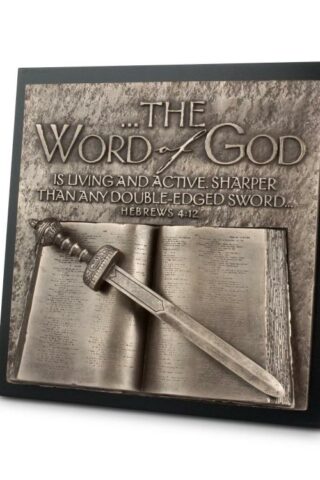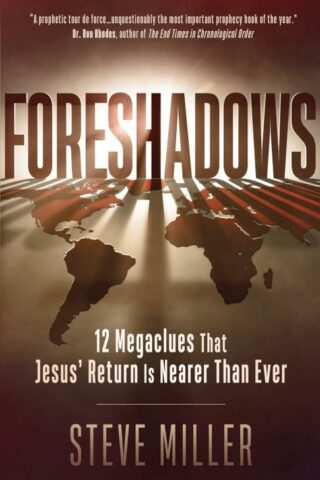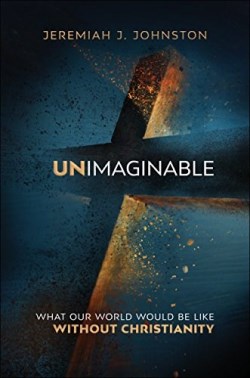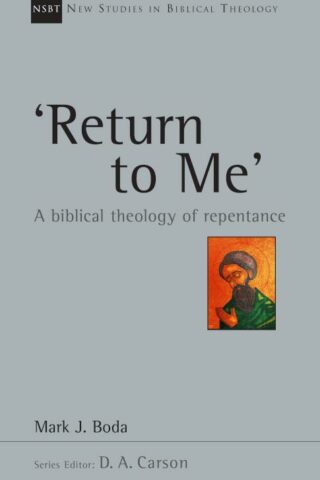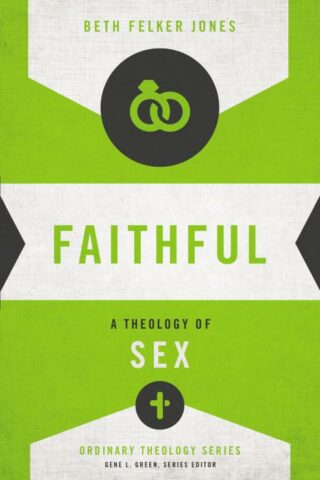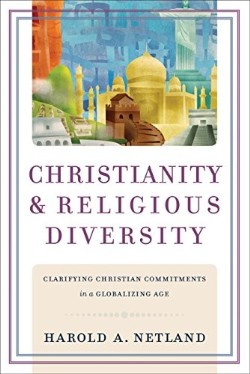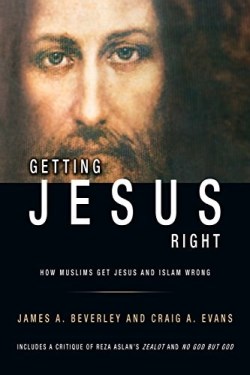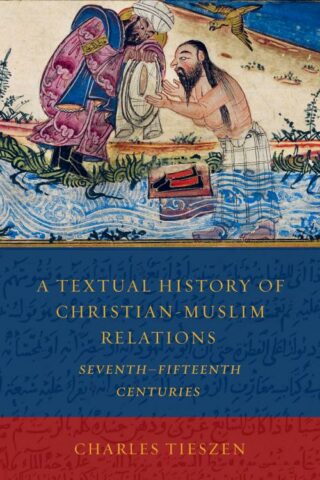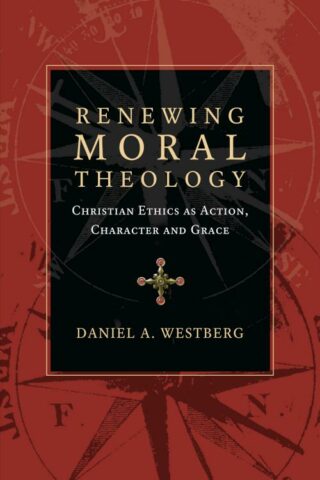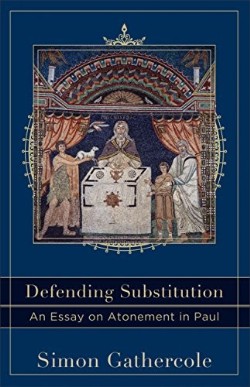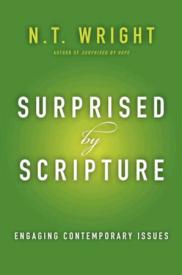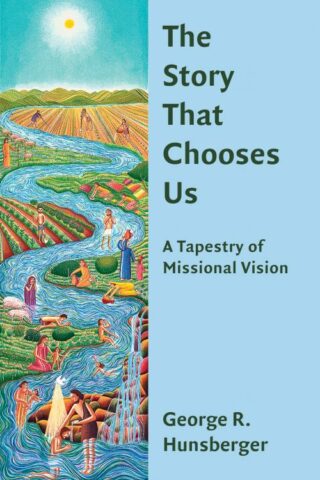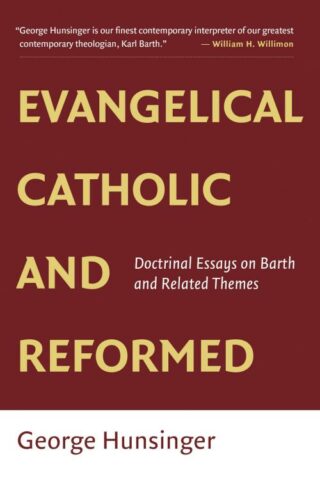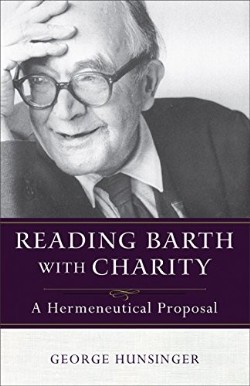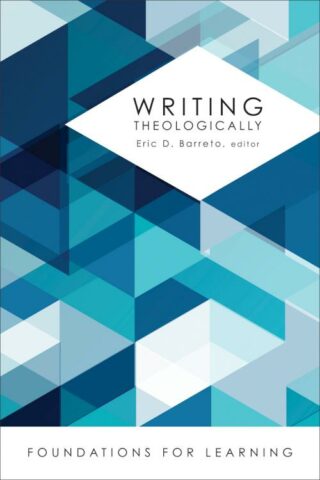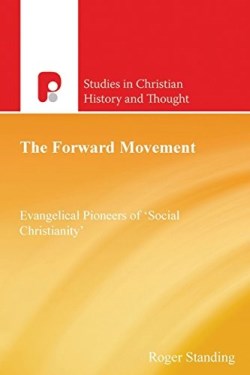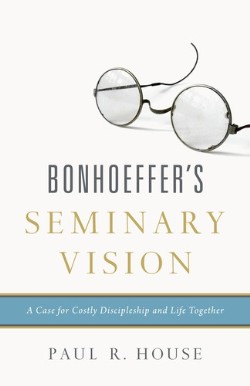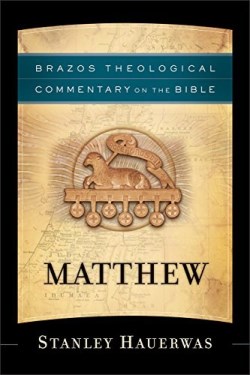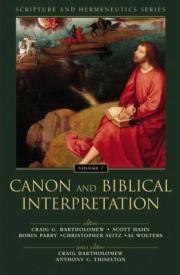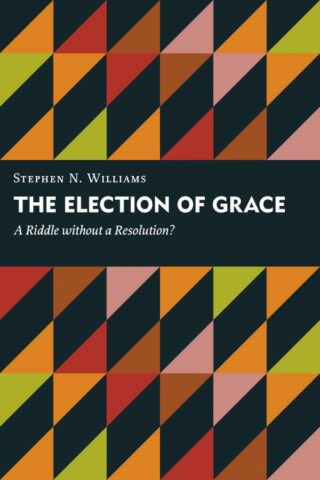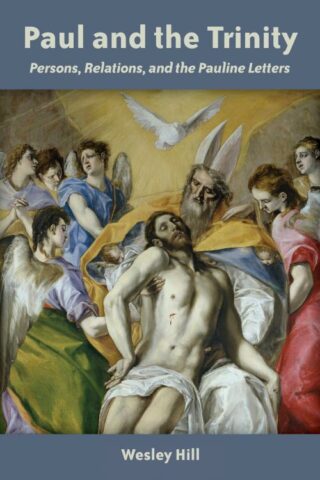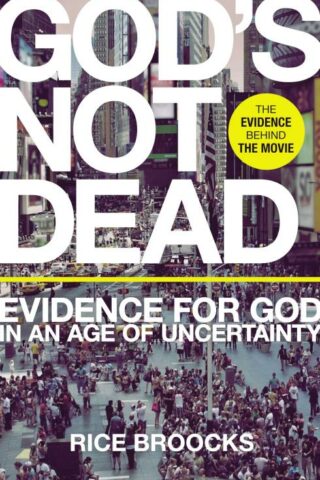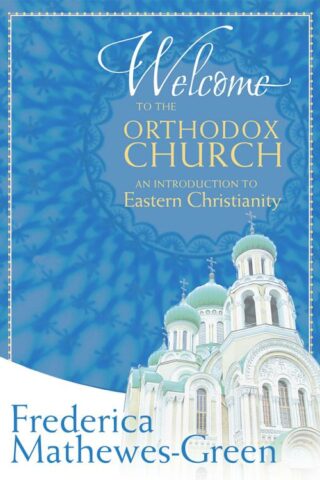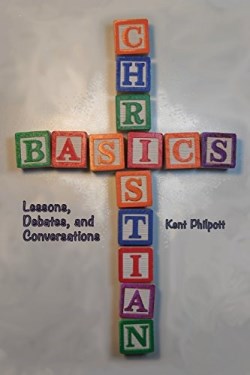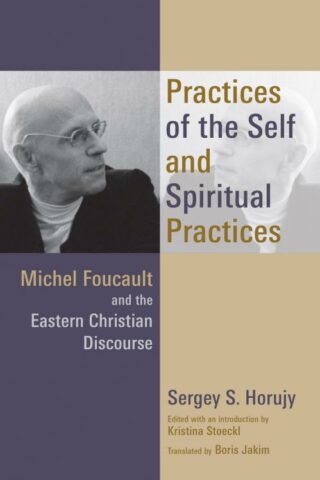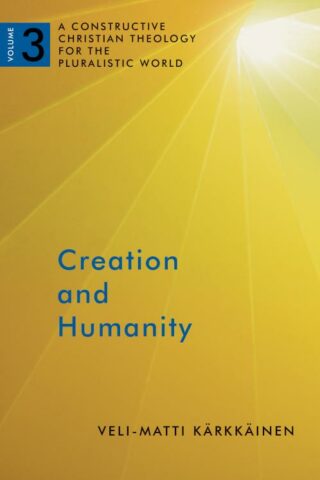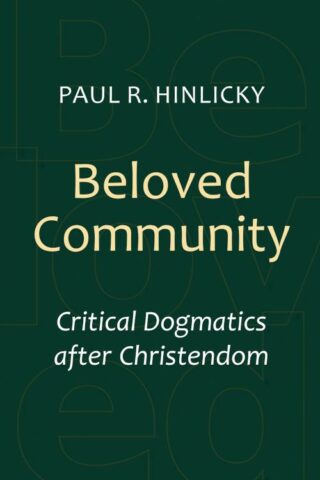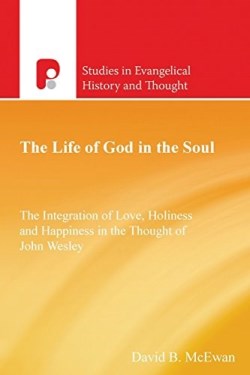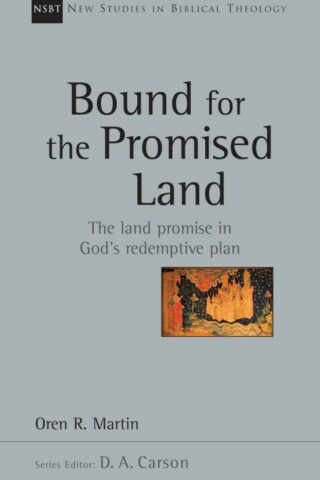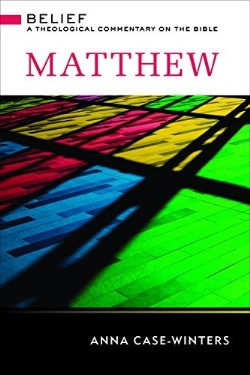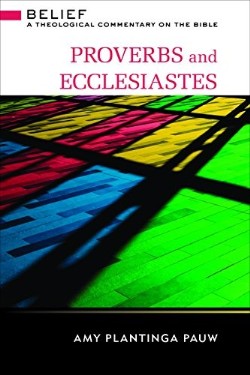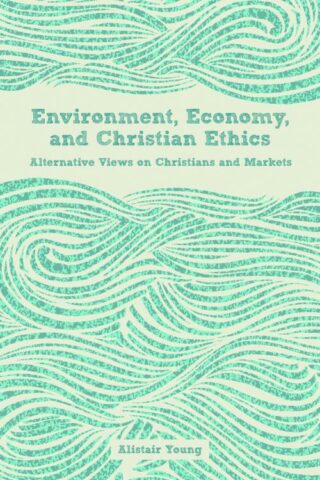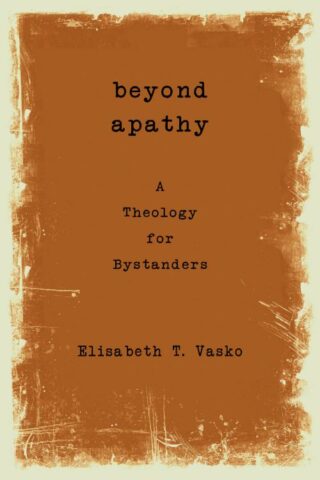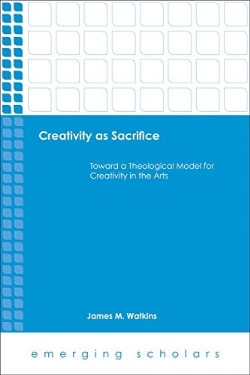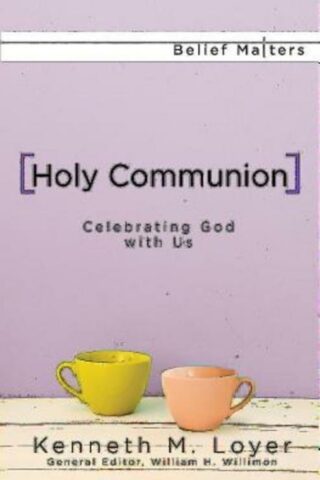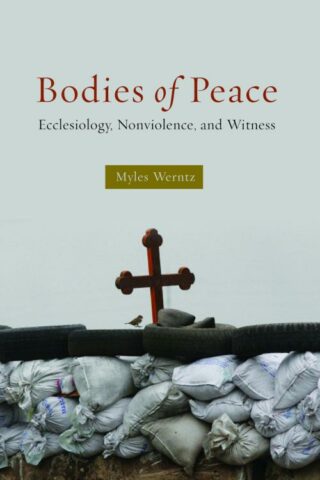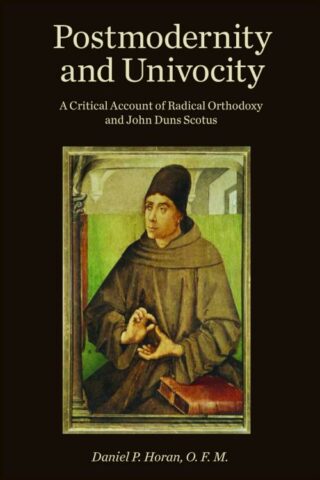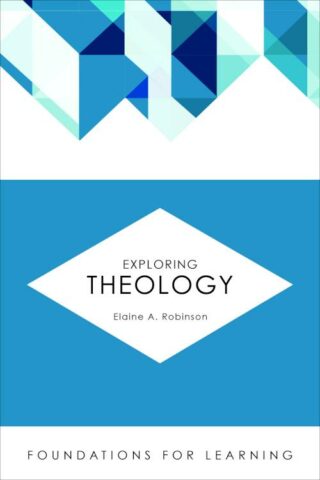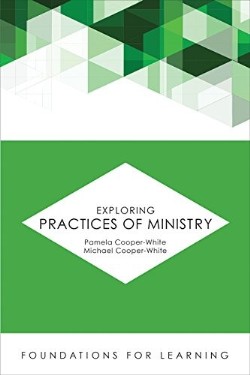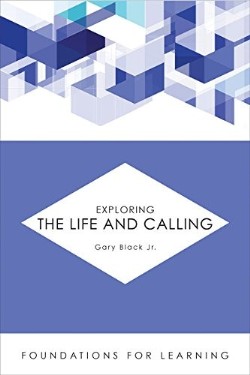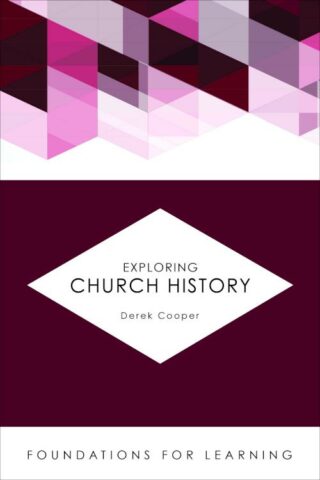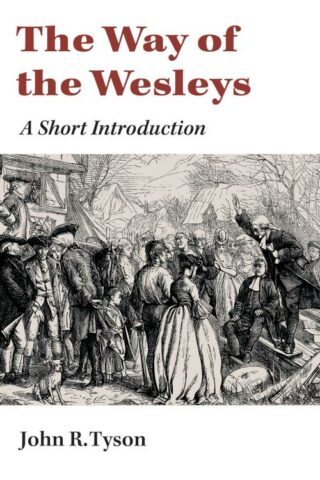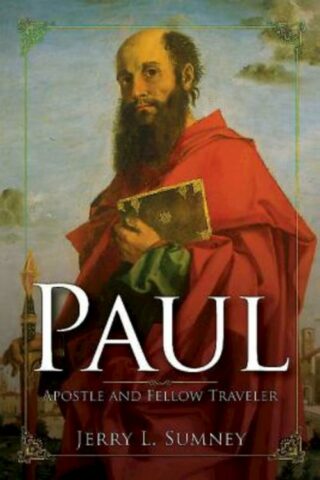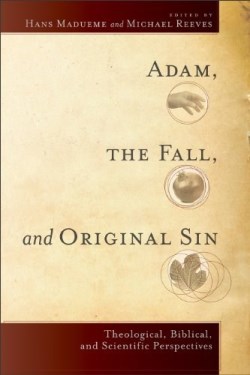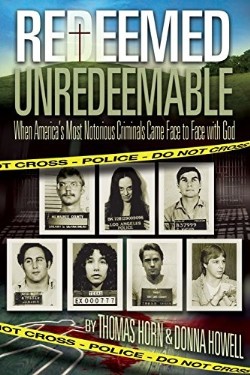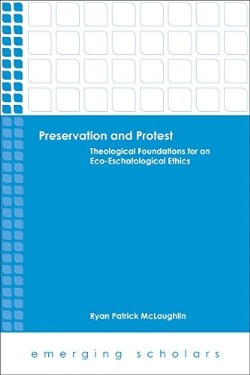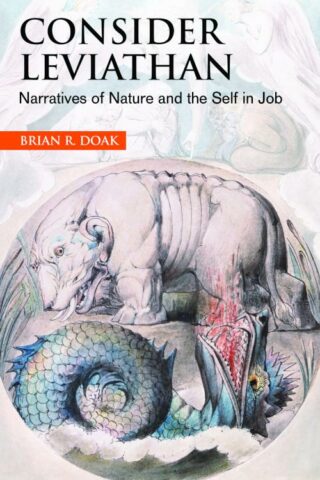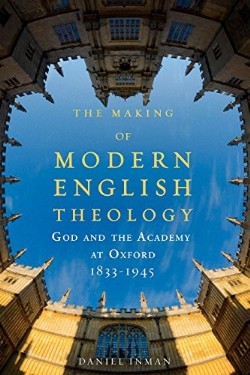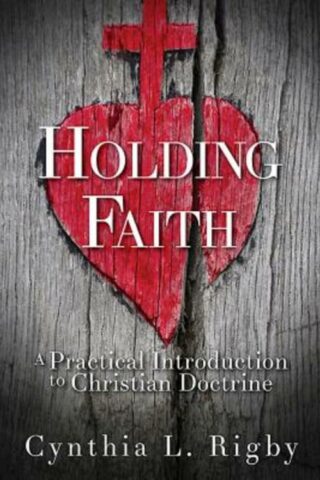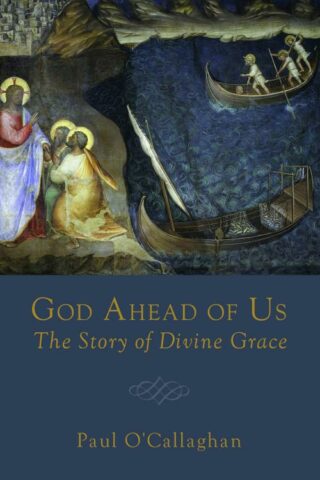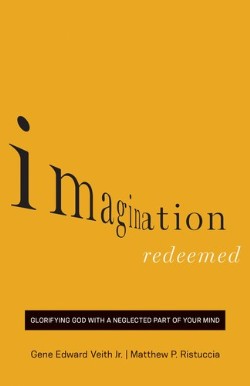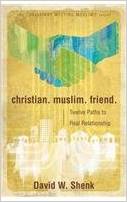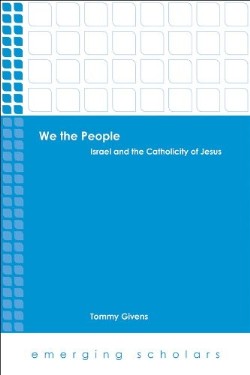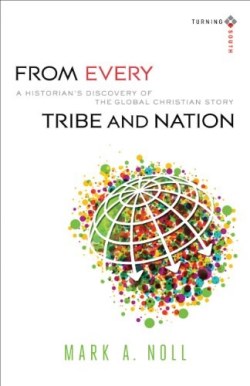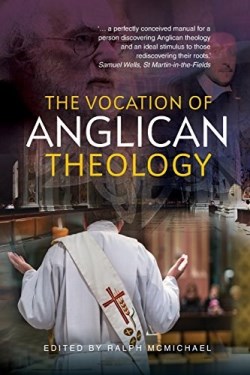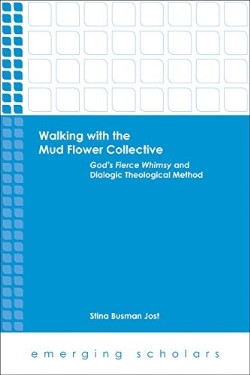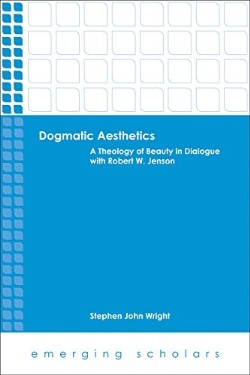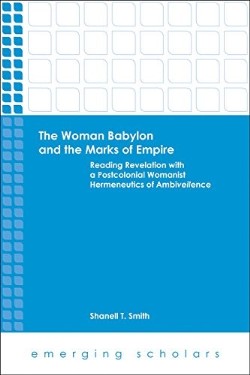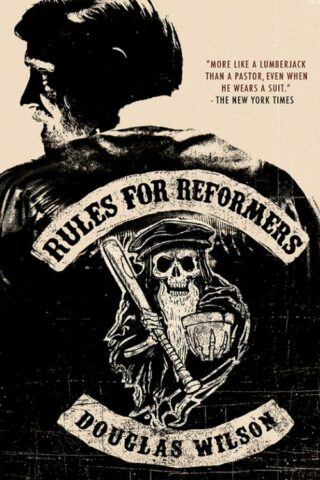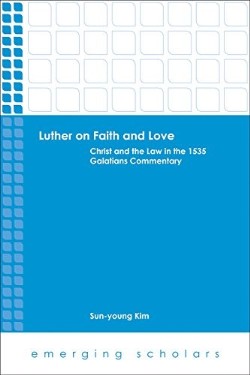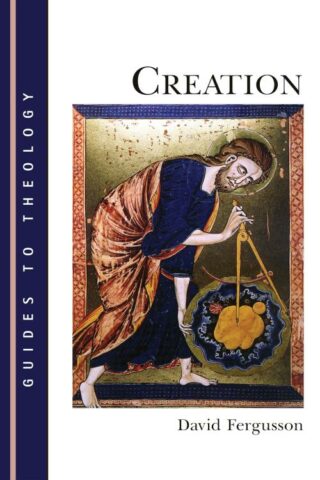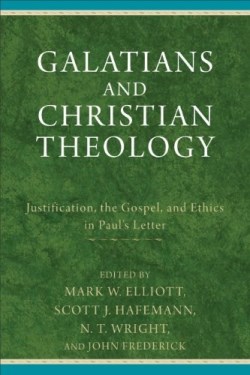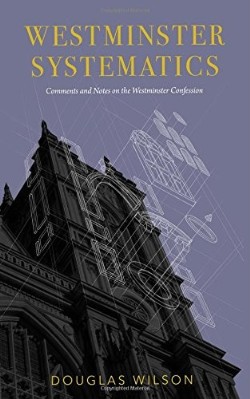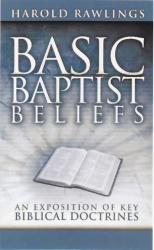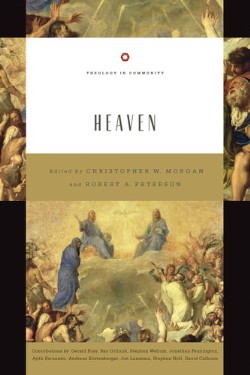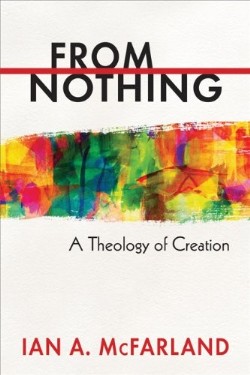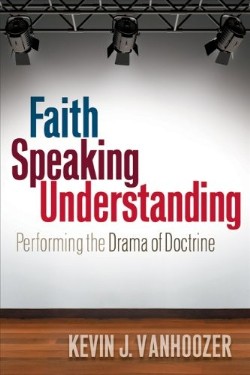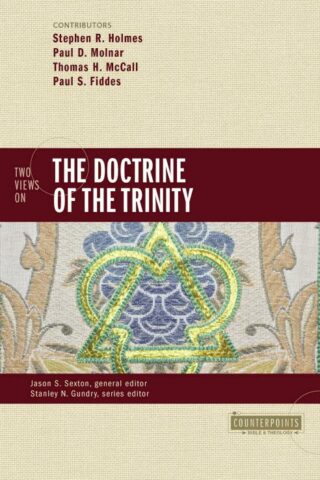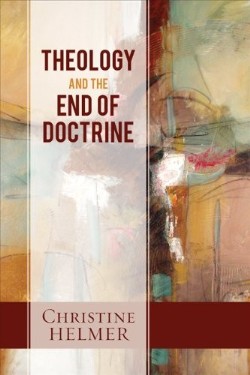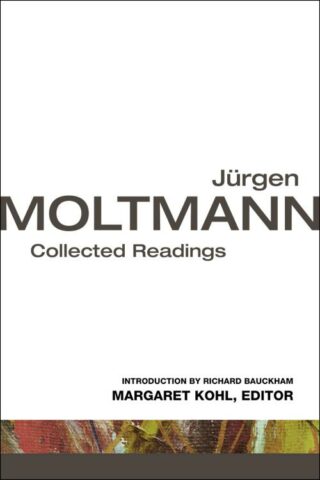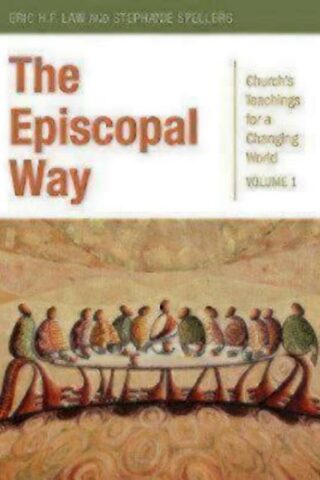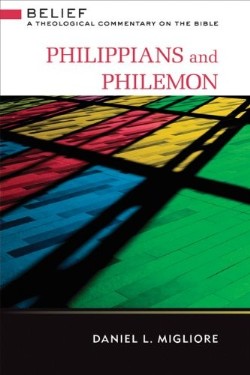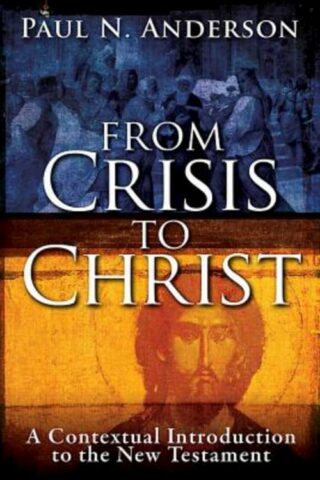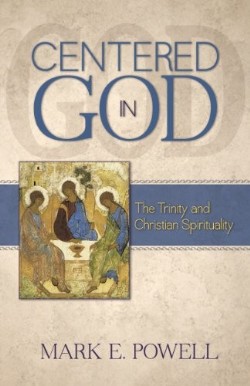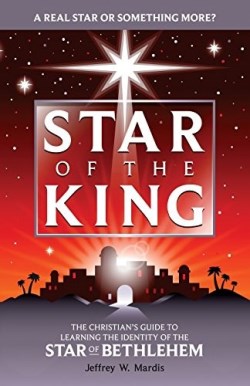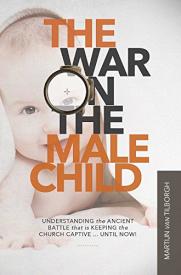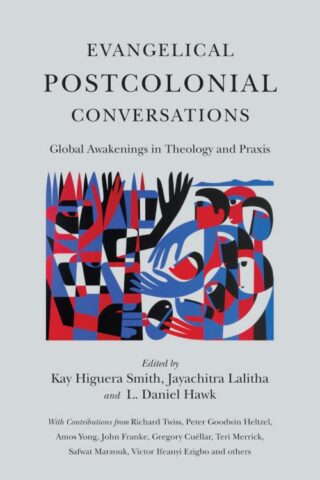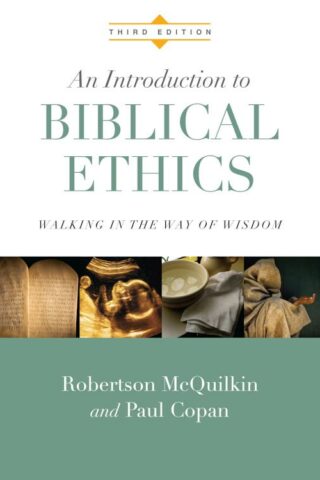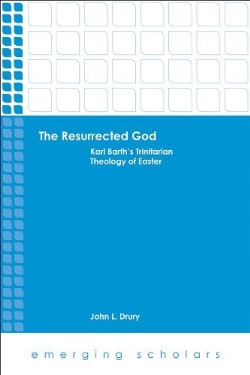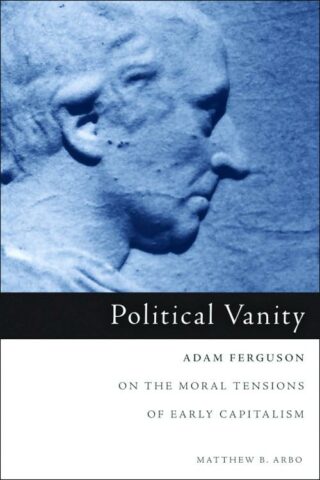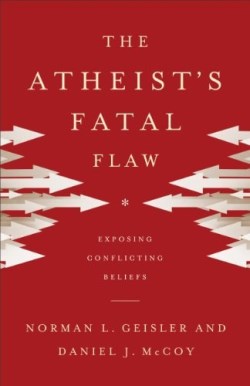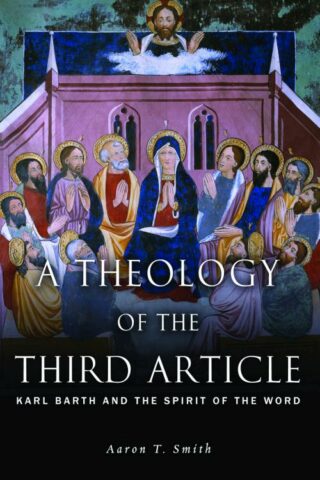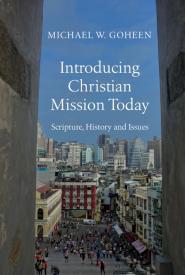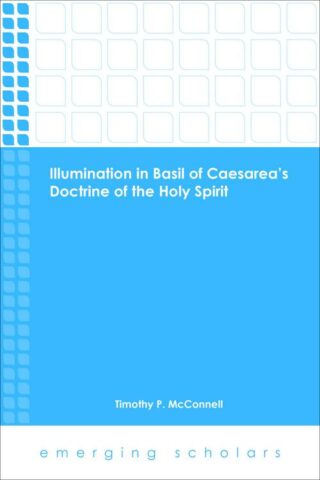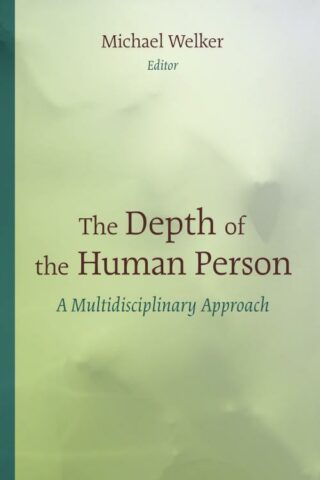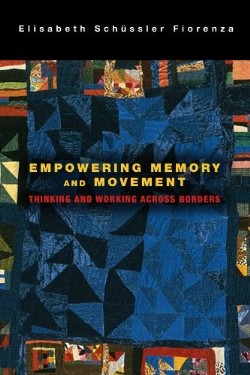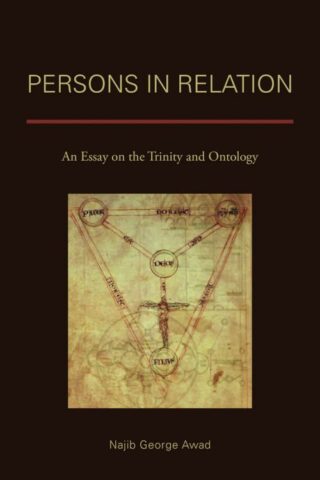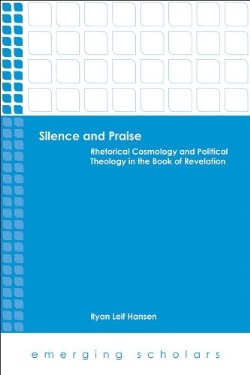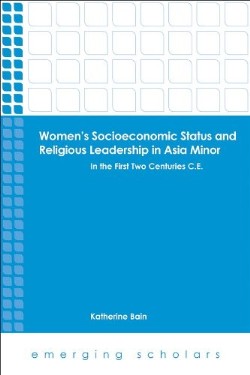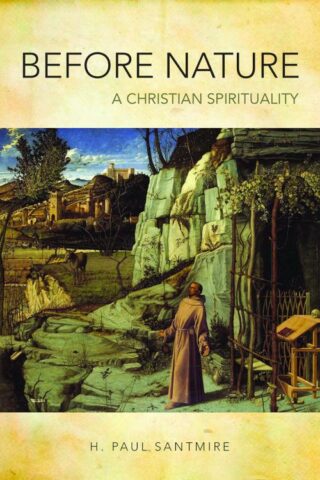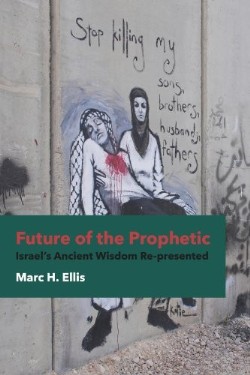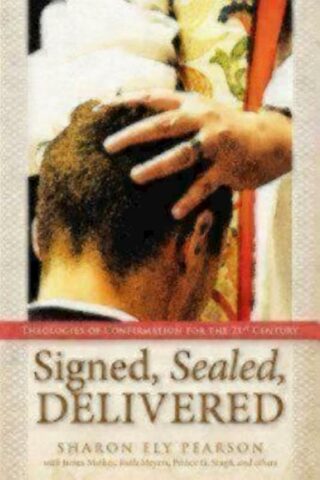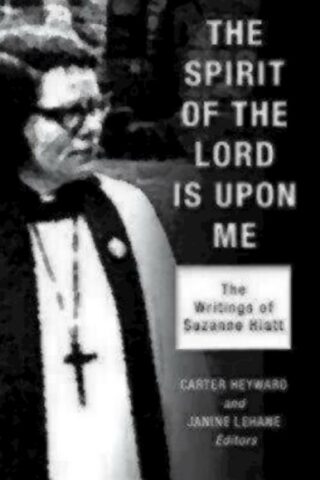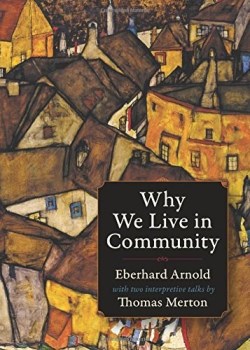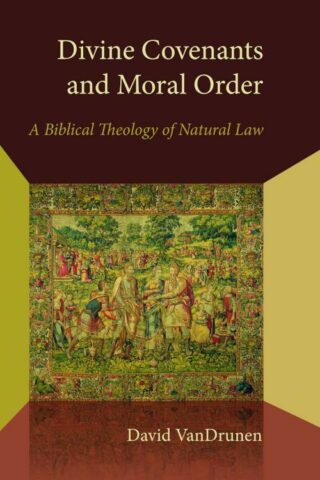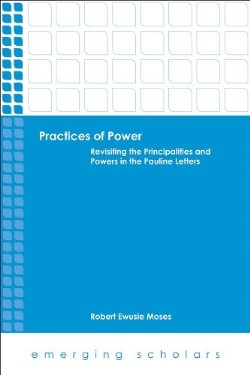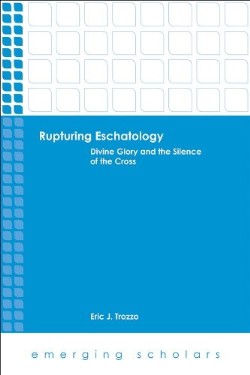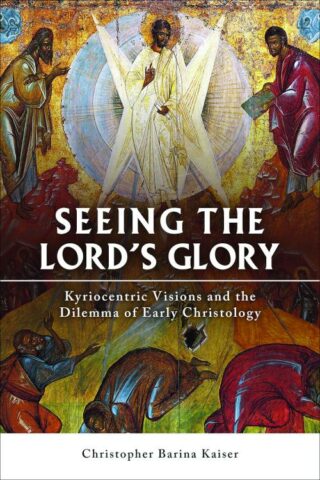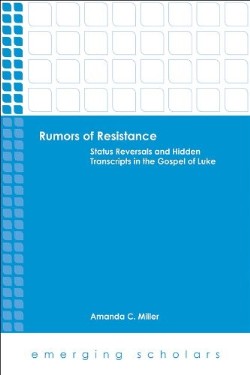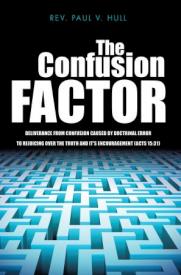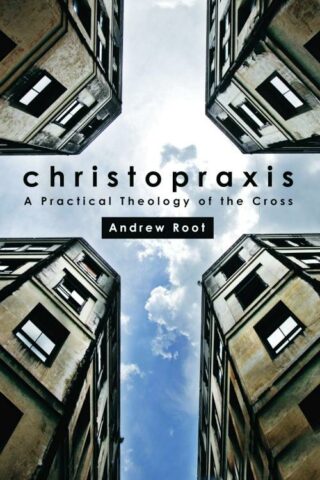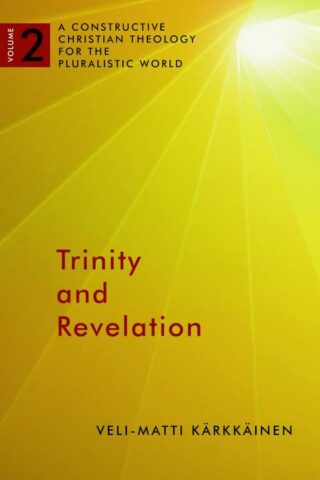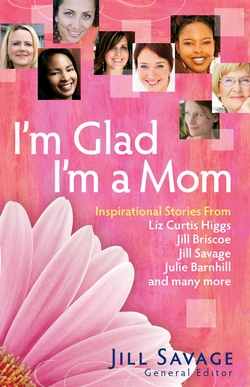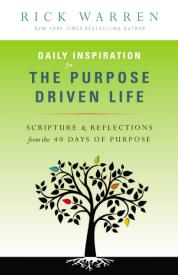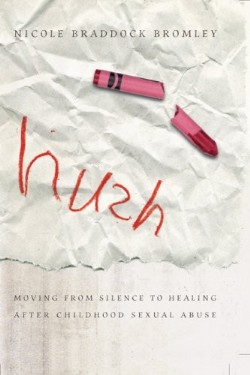Theology (Exegetical Historical Practical etc.)
Showing 601–700 of 2183 resultsSorted by latest
-
Return To Me
$28.99Series Preface
Author’s Preface
Abbreviations
1. Introduction
2. Repentance In The Torah
3. Repentance In The Former Prophets
4. Repentance In The Latter Prophets: Penitential Process
5. Repentance In The Latter Prophets: Isaiah
6. Repentance In The Latter Prophets: Jeremiah And Ezekiel
7. Repentance In The Latter Prophets: The Twelve
8. Repentance In The Writings: Wisdom And Worship
9. Repentance In The Writings: Exile And Restoration
10. Repentance In The Writings: Chronicles
11. Repentance In Old Testament Theology
12. Repentance In The New Testament
13. Repentance In New Testament Theology
14. Theological Implications Of Repentance
Bibliography
Index Of Authors
Index Of Scripture ReferencesAdditional Info
Return to me, says the LORD of hosts, and I will return to you’ (Zech. 1:3 ESV). Repentance concerns the repair of a relationship with God disrupted by human sin. All the major phases of church history have seen diversity and controversy over the doctrine. The first of Luther’s famous ninety-five theses nailed to the church door in Wittenburg in 1517 stated that ‘the entire life of believers should be one of repentance’. In recent times, two divisive debates within evangelicalism over ‘lordship salvation’ and ‘hypergrace’ have had repentance at their core. The theme of repentance is evident in almost every Old and New Testament corpus. However, it has received little sustained attention over the past half-century of scholarship, which has been largely restricted to word studies or focused on a particular text or genre. Studies of the overall theology of the Bible have typically given the theme only passing mention. In response, Mark Boda offers a comprehensive overview of the theological witness of Scripture to the theme of repentance. The key to understanding is not simply to be found in word studies, but also in the broader meaning of texts as these communicate through a variety of words, images and stories. The importance of repentance in redemptive history is emphasized. It is fundamentally a return to intimate fellowship with the triune God, our Creator and Redeemer. This relational return arises from the human heart and impacts attitudes, words and actions. ‘I have not found another book that sets out to treat repentance in quite the way that Mark Boda has: he patiently, thoroughly, and effectively works his way through Scripture to learn what repentance means and what it looks like in each canonical corpus, covering not only commonly used words, but also the fundamental concepts’ (D. A. Carson).Add to cartin stock within 3-5 days of online purchase
-
Faithful : A Theology Of Sex
$11.99Many believers accept traditional Christian sexual morality but have very little idea why it matters for the Christian life. In Faithful, author Beth Felker Jones sketches a theology of sexuality that demonstrates sex is not about legalistic morals with no basis in reality but rather about the God who is faithful to us. In Hosea 2:19-20 God says to Israel, “I will take you for my wife forever; I will take you for my wife in righteousness and in justice, in steadfast love, and in mercy. I will take you for my wife in faithfulness; and you shall know the Lord.” This short book explores the goodness of sexuality as created and redeemed, and it suggests ways to navigate the difficulties of living in a world in which sexuality, like everything else, suffers the effects of the fall. As part of Zondervan’s Ordinary Theology series, Faithful takes a deeper look at a subject Christians talk about often but not always thoughtfully. This short, insightful reflection explores the deeper significance of the body and sexuality.
Add to cartin stock within 3-5 days of online purchase
-
Getting Jesus Right
$19.95IS IT POSSIBLE THAT MUSLIMS ARE WRONG ABOUT JESUS AND VARIOUS TENETS OF ISLAM? Is the famous Muslim writer Reza Aslan mistaken in his portrayal of Jesus of Nazareth and apologetic for Islam? Professor James Beverley and Professor Craig Evans take an in-depth look at subjects at the core of the Muslim-Christian divide: the reliability of the New Testament Gospels and the Qur’an, and what we can really know about Jesus and the prophet Muhammad. Importantly, they also examine the implications of traditional Islamic faith on the status of women, jihad and terrorism.
Add to cartin stock within 3-5 days of online purchase
-
Textual History Of Christian Muslim Relations
$73.33The question of Christian-Muslim relations is one of enduring importance in the twenty-first century. While there exists a broad range of helpful overviews on the question, these introductory texts often fail to provide readers with the depth that a thorough treatment of the primary sources and their authors would provide.
In this important new project, Charles Tieszen provides a collection of primary theological sources devoted to the formational period of Christian-Muslim relations. It provides brief introductions to authors and their texts along with representative selections in English translation. The collection is arranged according to the key theological themes that emerge as Christians and Muslims encounter one another in the seventh to fifteenth centuries.
The result is a resource that offers students a far better grasp of the texts early Christians and Muslims wrote about each other and a better understanding of the important theological themes that are pertinent to Christian-Muslim dialogue today.
Add to cartin stock within 3-5 days of online purchase
-
Renewing Moral Theology
$29.99Moral theology, rooted in Thomas Aquinas, has long found its home in the Catholic and Anglican traditions, and in recent years it has become more familiar through the perspective known as virtue ethics. Renewing Moral Theology unfolds an ethical perspective that is thomistic in structure, evangelical in conviction and Anglican in ethos.
Add to cartin stock within 3-5 days of online purchase
-
Defending Substitution : An Essay On Atonement In Paul
$28.23In recent decades, the church and academy have witnessed intense debates concerning the concept of penal substitution to describe Christ’s atoning sacrifice. Some claim it promotes violence, glorifies suffering and death, and amounts to divine child abuse. Others argue it plays a pivotal role in classical Christian doctrine. Here world-renowned New Testament scholar Simon Gathercole offers an exegetical and historical defense of the traditional substitutionary view of the atonement. He provides critical analyses of various interpretations of the atonement and places New Testament teaching in its Old Testament and Greco-Roman contexts, demonstrating that the interpretation of atonement in the Pauline corpus must include substitution.
Add to cartin stock within 3-5 days of online purchase
-
Surprised By Scripture
$20.99N. T. Wright-“the world’s leading New Testament scholar” (Newsweek)-provides a series of case studies on how to apply the Bible to pressing contemporary issues. Among the topics Wright addresses are the intersection of religion and science, why women should be allowed to be ordained, what we get wrong and how we can do better when Christians engage in politics, why the Christian belief in heaven means we should be at the forefront of the environmental movement, and many more.
As he fearlessly wades through the difficult issues facing us, Wright offers new models for understanding how to affirm the Bible in today’s world as well as encouragement and renewed energy for deepening our faith and engaging with the culture around us.
Add to cartin stock within 3-5 days of online purchase
-
Story That Chooses Us
$27.99Over the course of several decades, missiologist George Hunsberger has written numerous essays on crucial themes for the church’s recovery of its missional identity and practice. The Story That Chooses Us brings these essays together for the first time.
The book as a whole presents a composite sense of the missional identity and faithful witness to which the church is called in contemporary Western society. Hunsberger engages with well-known missiologist Lesslie Newbigin throughout his work as he carefully discerns biblical and theological roots for a contemporary vision of missional theology. The recurring themes in Hunsberger’s essays provide both theological mooring and practical guidance for churches following Christ on the missional path.
Add to cartin stock within 3-5 days of online purchase
-
Evangelical Catholic And Reformed
$37.99In this book prominent Barth scholar George Hunsinger presents fifteen essays on Karl Barth’s understanding of Christian doctrine across a wide spectrum of topics, concluding with suggestions as to how Barth’s theology might fruitfully be retrieved for the future.
Hunsinger discusses Barth’s views on such subjects as the Trinity, creation, natural theology, Christology, justification, and time and eternity. As he delves into Barth’s theological substance, Hunsinger highlights ways in which Barth’s work was Evangelical, Catholic, and Reformed, illuminating the ecumenical aspects of his thought.
No other volume explains Barth’s views on this range of topics with such scope, depth, and clarity.
Add to cartin stock within 3-5 days of online purchase
-
Reading Barth With Charity
$45.00Karl Barth and his legacy have dominated theology circles for over a decade. In this volume George Hunsinger, a world-renowned expert on Barth’s theology, makes an authoritative contribution to the debate concerning Barth’s trinitarian theology and doctrine of election. Hunsinger challenges a popular form of Barth interpretation pertaining to the Trinity, demonstrating that there is no major break in Barth’s thought between the earlier and the later Barth of the Church Dogmatics. Hunsinger also discusses important issues in trinitarian theology and Christology that extend beyond the contemporary Barth debates. This major statement will be valued by professors and students of systematic theology, scholars, and readers of Barth.
Add to cartin stock within 3-5 days of online purchase
-
Writing Theologically
$37.501. Writing Basically
2. Writing Persuasively
3. Writing For The Ear
4. Writing Briefly
5. Writing Creatively
6. Writing Publicly
7. Writing Digitally
8. Writing Purposefully
9. Writing Personally
10. Writing SpirituallyAdditional Info
Of course, by writing we refer to the kinds of reflections, essays, and exams students will have to complete in the seminary classroom. But writing also encompasses the many modes of communication and self-discovery that creative expression can unlock. Writing Theologically introduces writing not just as an academic exercise but as a way for students to communicate the good news in rapidly changing contexts, as well as to discover and craft their own sense of vocation and identity. Most important will be guiding students to how they might begin to claim and hone a distinctive theological voice that is particularly attuned to the contexts of writer and audience alike.In a collection of brief, readable essays, this volume, edited by Eric D. Barreto, emphasizes the vital skills, practices, and values involved in writing theologically. That is, how might students prepare themselves to communicate effectively and creatively, clearly and beautifully, the insights they gather during their time in seminary? Each contribution includes practical advice about best practices in writing theologically; however, the book also stresses why writing is vital in the self-understanding of the minister, as well as her or his public communication of the good news.
Add to cartin stock within 3-5 days of online purchase
-
Bonhoeffers Seminary Vision
$22.50Dietrich Bonhoeffer is best known for his role in a plot to assassinate Adolf Hitler and his subsequent execution at the hands of the Nazis. However, readers are less familiar with his tireless work educating seminary students for a life of pastoral ministry. Anchored in a variety of influential lectures, personal letters, and major works such as The Cost of Discipleship, this book attempts to recover a largely unexamined part of Bonhoeffer’s life-exploring his philosophy and practice of theological education in his original context. It then builds on this foundation to address the drift toward increasingly impersonal educational models in our own day, affirming the value of personal, face-to-face seminary education for the health of pastors and churches.
Add to cartin stock within 3-5 days of online purchase
-
Matthew
$37.64This commentary brings the stimulating insights of world-renowned theologian Stanley Hauerwas to the first Gospel. This volume, like each in the Brazos Theological Commentary on the Bible, is designed to serve the church–through aid in preaching, teaching, study groups, and so forth–and demonstrate the continuing intellectual and practical viability of theological interpretation of the Bible.
Add to cartin stock within 3-5 days of online purchase
-
Canon And Biblical Interpretation
$36.99Drawing on a broad array of contributors, volume seven of the Scripture and Hermeneutics Series assesses the current state of canonical interpretation and uses that as a starting point for exploring ingredients in theological interpretation of the Bible today. Canon and Biblical Interpretation begins with a masterful examination of the canonical approach and the various criticisms that have been leveled against it. Additional chapters look at canonical interpretation in relation to different parts of the Bible, such as the Pentateuch, the Wisdom books, the Psalms, and the Gospels. Articles address such issues as canonical authority and the controversial relationship between canonical interpretation and general hermeneutics. A unique chapter explores the relationship between academic exegesis and lectio divina. Editors: – Craig Bartholomew – Robin Parry – Scott Hahn – Christopher Seitz – Al Wolters
Add to cartin stock within 3-5 days of online purchase
-
Election Of Grace
$29.99Few issues in Christian theology have sparked as much controversy over the centuries as the question of election. In this book – the inaugural volume of the Kantzer Lectures in Revealed Theology series – Stephen Williams offers a rich and nuanced account of the doctrine of election, arguing that we should diminish the role of “system” in Christian theology.
After expounding the Bible’s teaching on election, Williams turns to questions of theological method and substance. He maintains that the subject of predestination must be considered in a wider biblical context than it often is and that we cannot expect to understand election within a comprehensive systematic framework. What matters is the relation of particular truths to the particulars of life, he says, not the systematic relation of truths to each other. Williams draws on and applies the insights of remarkable nineteenth-century Anglican leader Charles Simeon throughout his study, concluding the book with a cogent discussion of Karl Barth on election.
Add to cartin stock within 3-5 days of online purchase
-
Paul And The Trinity
$29.99Fresh perspective on Paul’s teaching about God the Father, Jesus Christ, and the Spirit
Paul’s ways of speaking about God, Jesus, and the Spirit are intricately intertwined: talking about any one of the three, for Paul, implies reference to all of them together. However, much current Pauline scholarship discusses Paul’s God-, Christ-, and Spirit-language without reference to Trinitarian theology.
In contrast to that trend, Wesley Hill argues in this book that post-Pauline Trinitarian theologies represent a better approach, opening a fresh angle on Paul’s earlier talk about God the Father, Jesus Christ, and the Spirit. Hill looks critically at certain wellknown discussions in the field of New Testament studies – those by N. T. Wright, Richard Bauckham, Larry Hurtado, and others – in light of patristic and contemporary Trinitarian theologies, resulting in an innovative approach to an old set of questions.
Adeptly integrating biblical exegesis and historical-systematic theology, Hill’s Paul and the Trinity shows how Trinitarian theologies illumine interpretive difficulties in a way that more recent theological concepts have failed to.
Add to cartin stock within 3-5 days of online purchase
-
Gods Not Dead
$19.99A compelling argument for Christianity that equips believers like never before.
The goal of God’s Not Dead: Evidence for God in an Age of Uncertainty is straightforward: to help readers develop “a faith that is real and credible-and strong enough to help others find faith in God.” To that end, Rice Broocks outlines a roadmap that guides seekers to acknowledge the most basic truths of Christianity:
There is overwhelming and exciting evidence for God’s existence
The God who exists is indeed the God of the Bible
God has revealed his nature through his Son, Jesus ChristPersuasive arguments crafted with tools borrowed from logic, science, and philosophy, as well as scripture, solidify the faith of the Christian reader and provide starting points for discussions with skeptics. With clear, easy-to-follow explanations of key concepts and controversies, God’s Not Dead is apologetics for the twenty-first century, presented in layman’s terms. Readers will be empowered not only to talk about their own faith with confidence but to lead others to a relationship with Jesus.
Add to cartin stock within 3-5 days of online purchase
-
Welcome To The Orthodox Church
$19.99There are other introductory books about Orthodoxy, but they are all somewhat academic. This one comprehensively covers the history, theology, and practice without talking over your head. Mathewes-Green takes the original approach of bringing you into a typical church for a series of visits. That is how Christians learned the faith for most of history, by coming into a community and keeping their eyes and ears open. Designed primarily for newcomers to come to understand Orthodoxy and Orthodox Christians, this guide to the faith is also a non-threatening and accessible introduction to people already “in the pews.” Inviting rather than argumentative, Orthodox Christians will be giving this to their friends.
Add to cartin stock within 3-5 days of online purchase
-
Christian Basics : Lessons Debates And Conversations
$11.75Christian Basics is written by Kent Philpott, thirty-one years the pastor of Miller Avenue Baptist Church in Mill Valley, California, and is written for that congregation. It is helpful for new believers and also for those with a more mature biblical orientation. Philpott earned an M.Div. from Golden Gate Baptist Theological Seminary and a D.Min. from San Francisco Theological Seminary. He has authored some fifteen books starting in the 1970s and has been published by Zondervan Publishing House, Logos International, Bible Voice, and Evangelical Press in the UK. Christian Basics is structured around “Lessons, Debates, and Conversations.” Section One consists of sixteen lessons in three parts. Part One: The God Who Reveals Himself. Its seven lessons are The God of the Bible, Revelation, Scripture, The Old Testament, The New Testament, How We Got the Bible, and The Great Paradoxes of the Bible. Part Two looks at The Great Themes of the Bible in five lessons: Election, Presence, Rest, Peace, Two Messiahs, Judgment, Persecution/Triumph of Christ’s Church. Part Three considers Christianity in four lessons: The Church, The Christian Ethic, The Christian Life, and Church History. Section Two contains fifteen lessons in two parts: Four Debates and Eleven Conversations. The Four Debates: The Exclusiveness of Jesus, The Authority of Scripture, Heaven and Hell, and Same-Sex Marriage. These debates are extramural in nature, meaning that they define biblical Christianity and are essential to the Christian identity. The Eleven Conversations: Abortion, Baptism and Lord’s Supper, Church Government, Divorce and Remarriage, Ecumenism, End Time Scenarios, Gifts of the Holy Spirit, Music in the Church, Origins, Politics and War, Reformed vs. Arminian Theology, and Women in the Church. These conversations are intramural in nature, being issues that Christians may disagree on, but they invite differing interpretations. They are squabbles taking place within the Family.
Add to cartin stock within 3-5 days of online purchase
-
Practices Of The Self And Spiritual Practices
$28.99In this book Sergey Horujy undertakes a novel comparative analysis of Foucault’s theory of practices of the self and the Eastern Orthodox ascetical tradition of Hesychasm, revealing great affinity between these two radical subject-less approaches to anthropology. As he facilitates the dialogue between the two, he offers both an original treatment of ascetical and mystical practices and an up-to-date interpretation of Foucault that goes against the grain of mainstream scholarship.In the second half of the book Horujy transitions from the dialogue with Foucault to his own work of Christian philosophy, rooted in — but not limited to — the Eastern Christian philosophical and theological tradition. Horujy’s thinking exemplifies the postsecular nature of our contemporary period and serves as a powerful invitation to think beyond religious-secular divides in philosophy and Eastern-Western divides in intellectual history.”
Add to cartin stock within 3-5 days of online purchase
-
Creation And Humanity
$48.99This third volume of Veli-Matti Karkkainen’s ambitious five volume theology project develops a Christian theology of creation and humanity (theological anthropology) in dialogue with the Christian tradition, with contemporary theology in all its global and contextual diversity, and with other major living faiths – Judaism, Islam, Buddhism, and Hinduism.
In constructing his theology of creation and humanity, Karkkainen uniquely engages the natural sciences, including physical, cosmological, and neuroscientific theories. He devotes particular attention to the topics of divine action in a world subjected to scientific study, environmental pollution, human flourishing, and the theological implications of evolutionary theory – with regard to both cosmos and humanity.
Add to cartin stock within 3-5 days of online purchase
-
Beloved Community : Critical Dogmatics After Christendom
$78.99In this scholarly work Paul Hinlicky transcends the impasse between dogmatic and systematic theology by articulating and arguing a single cognitive claim: God is the One who has determined to redeem the creation by the missions of his Son and Spirit.
Deploying an unusual Spirit-Son-Father trinitarian scheme, Hinlicky treats the problem of the knowledge of God and the nature of the theological discipline, and he proceeds to carefully develop his system of theology through expansive, wideranging argumentation. Each main part of his work includes discussion of the ecumenical convergences in doctrine gained over the last generation and exploration of interreligious dialogues, especially with Judaism and Islam. Throughout the book, Hinlicky engages with other theologians – particularly with Robert Jenson’s Systematic Theology – and concludes each major section with a discussion of an alternate perspective on the subject.
Add to cartin stock within 3-5 days of online purchase
-
Life Of God In The Soul
$43.73The book examines Wesley’s understanding of the three qualities of love, holiness and happiness and how they are intimately related in his understanding of salvation and discipleship. This forms the basis for examining some of the implications of his understanding for spiritual formation today.
Add to cartin stock within 3-5 days of online purchase
-
Bound For The Promised Land
$29.99Series Preface
Author’s Preface
Abbreviations
Introduction1. Biblical Theology And The Land Promise
2. The Beginning And The End: The Land And The Kingdom
3. Making The Promise: Genesis
4. Advancing The Promise: Exodus-Deuteronomy
5. Partially Fulfilling The Promise: Joshua-Kings
6. Fulfilling The Promise? Exile And The Prophets Of An Eschatalogical Hope
A Concluding Summary Of The Old Testament
7. The Fulfilment Of The Promise Inaugurated: The Gospels
8. The Fulfilment Of The Promise Inaugurated: The Epistles
9. The Fulfilment Of The Promise Consummated: The Eschatological Kingdom In Revelation
A Concluding Summary Of The New Testament
10. Theological ReflectionsBibliography
Author Index
Scripture IndexAdditional Info
Just as the Old Testament book of Genesis begins with creation, where humans live in the presence of their Lord, so the New Testament book of Revelation ends with an even more glorious new creation where all of the redeemed dwell with the Lord and his Christ.The historical development between the beginning and the end is crucial, for the journey from Eden to the new Jerusalem proceeds through the land promised to Abraham. The Promised Land is the place where God’s people will once again live under his lordship and experience his blessed presence.
In this stimulating study from the New Studies in Biblical Theology series, Oren Martin demonstrates how, within the redemptive-historical framework of God’s unfolding plan, the land promise advances the place of the kingdom that was lost in Eden. This promise also serves as a type throughout Israel’s history that anticipates the even greater land, prepared for all of God’s people, that will result from the person and work of Christ and that will be enjoyed in the new creation for eternity.
Addressing key issues in biblical theology, the works comprising New Studies in Biblical Theology are creative attempts to help Christians better understand their Bibles. The NSBT series is edited by D. A. Carson, aiming to simultaneously instruct and to edify, to interact with current scholarship and to point the way ahead.
Add to cartin stock within 3-5 days of online purchase
-
Matthew : A Theological Commentary On The Bible
$52.00One of the most beloved books of the New Testament, the Gospel of Matthew speaks with eloquence and power. Among the Gospels, Matthew paints a fuller picture of the life, ministry, and teachings of Jesus. Anna Case-Winters’s incisive commentary reveals that Matthew is clearly a theological book. It is about God’s saving work in Jesus Christ. Moreover, it is presented in a way that easily lends itself to the task of teaching and preaching. Case-Winters highlights five themes that shape the distinctive portrait of Jesus this Gospel offers. Here we see Jesus facing up to conflict and controversy, ministering at the margins, overturning presuppositions about insiders and outsiders, privileging the powerless, demonstrating the authority of ethical leadership, challenging allegiance to empire, and pointing the way to a wider divine embrace than many dared imagine. Case-Winters captures the core of Matthew’s unique Gospel, which speaks powerfully to the life of Christian faith today in the midst of our own issues and struggles.
Add to cartin stock within 3-5 days of online purchase
-
Proverbs And Ecclesiastes
$47.00In this new volume in the Belief series, Amy Plantinga Pauw reveals how the biblical books of Proverbs and Ecclesiastes, while often overlooked, are surprisingly relevant for Christian faith today. Both biblical books probe everyday human experiences. They speak to those who seek meaning and purpose in an uncertain world and encourage us to look for God’s presence in human life, not in divine visions or messages. They show openness to wisdom insights from many sources, urging us to find the commonalities and connections of our wisdom with those of our religious neighbors. Ultimately, these books affirm that true wisdom, whatever its human source, comes from God. Pauw includes reflections for preaching and teaching throughout her study.
Add to cartin stock within 3-5 days of online purchase
-
Environment Economy And Christian Ethics
$65.00What is to be done about the damaging impact of economic activity on the environment? In recent years, there has been growing debate over this question. This book, by an economist, urges Christians to support strong governmental and intergovernmental action to improve the workings of existing global economic systems so as to provide adequate environmental protection. As such, it draws on the tradition of mainstream environmental economics and on recent developments in “ecological economics.” But it acknowledges that environmental policy raises important ethical and theological issues often briefly or inadequately covered within economic literature: ethically responsible attitudes to uncertainty, inequality within and between generations, the rights of traditional communities, and the obligation to respect nonhuman elements within creation. To such issues, theologians of various persuasions have in the past paid more attention than economists. At the same time, theologians have not always shown awareness of the likely economic consequences of their own proposals. In particular, some have been reluctant to acknowledge the role of market failure in causing environmental problems, while others are too eager to get rid of markets altogether. This book tries to develop sound ethical foundations for environmental policy, while providing concrete perspective on economic realities.
Add to cartin stock within 3-5 days of online purchase
-
Beyond Apathy : A Theology For Bystanders
$48.33Theological conversations about violence have typically framed the discussion in terms of victim and perpetrator. Such work, while important, only addresses part of the problem. Comprehensive theological and pastoral responses to violence must also address the role of collective passivity in the face of human denigration. Given the pervasiveness of inaction-whether in the form of denial, willful ignorance, or silent complicity-a theological reflection on violence that holds bystanders accountable, especially those who occupy social sites of privilege, is long overdue. In Beyond Apathy, Elisabeth T. Vasko utilizes resources within the Christian tradition to examine the theological significance of bystander participation in patterns of violence and violation within contemporary Western culture, giving particular attention to the social issues of bullying, white racism, and sexual violence. In doing so, she constructs a theology of redeeming grace for bystanders to violence that foregrounds the significance of social action in bringing about God’s basileia.
Add to cartin stock within 3-5 days of online purchase
-
Creativity As Sacrifice
$98.33Theological interest in art is at a premium. However, theological engagement with art is often enacted without a clear sense of method. This text argues for a theological methodology in engaging the arts, and, specifically, the author puts forward a theological model for understanding human creativity in the light of Jesus’ sacrificial redemption. In dialogue with theology, philosophy, psychology, and art theory, the author establishes the relevance and applicability of an incarnational and sacrificial model of human creativity. Theological models also do more than provide a conceptual framework for theological inquiries. They engage the imagination. A theological model for human creativity is like an invitation to join in the creative vision God has for the world, and to embody this vision in one’s own creative work. Therefore, Creativity as Sacrifice does not merely articulate a conceptual framework for human creativity; it also casts a vision for human life as a creative response to the gracious gifts of a creative God.
Add to cartin stock within 3-5 days of online purchase
-
Holy Communion : Celebrating God With Us
$17.99Through the service of Communion, the church remembers and celebrates the presence of God with us. To some, Communion is an empty ritual, devoid of meaning or personal significance. Because of that, low worship attendance commonly accompanies Communion Sundays leaving churches feeling spiritually depleted. Holy Communion, the second in the Belief Matters series, offers a richer appreciation of the sacrament and gives insights and practical suggestions for allowing Communion to have a more prominent role in church life and the Christian formation of individuals. The more Christians link Communion with spiritual formation and daily faith practice, the more likely congregations will be invigorated and empowered to carry out the missional directive to transform the world. The book is suitable for a 4-week study and offers study questions at the end of each chapter. The Belief Matters series assists pastors and clergy in explaining fundamental elements of the church and its worship to congregations. Holy Communion is the second in the series and follows Incarnation by William H. Willimon.
Add to cartin stock within 3-5 days of online purchase
-
Bodies Of Peace
$73.33Contents:
Introduction: Ecclesiology, Nonviolence, And The Claims Of War
1. War, Church, And The Plurality Of Witness
2. The Church As Witness: John Howard Yoder, Dialogical Nonviolence, And The Church’s Performance
3. The Church Forming Nonviolence: Dorothy Day, The Mystical Body, And The Logic Of Tradition
4. The Church As Naming Nonviolence Witness: William Stringfellow, The Powers, And The Word’s Renewing Work
5. The Church Supporting Nonviolence: Robert McAfee Brown, CALCAV, And Worldly Ecumenicity
Conclusion
BibliographyAdditional Info
This book argues that Christian nonviolence is both formed by and forms ecclesial life, creating an inextricable relationship between church commitment and resistance to war. Examining the work of John Howard Yoder, Dorothy Day, William Stringfellow, and Robert McAfee Brown, this book explores how each thinker’s advocacy for nonviolent resistance depends deeply upon the ecclesiology out of which it comes. These forms comprise four strands of a comprehensive Christian approach to a nonviolent witness rooted in ecclesial life.Because each of these figures’ ecclesiology implicates a different mode of resistance to war and a different relation between ecclesiology and resistance to war, the volume argues that any account of an ecclesially-informed resistance to war must be open to a multitude of approaches, not as pragmatic concessions, but as a foretaste of ecumenical unity. Insofar as the pursuit of peace in the world can be seen as a church bearing out the work of the Spirit, the approach of other ecclesial traditions can be seen not as competitors but as common works of the Spirit, which other traditions may learn from and be challenged by.
Add to cartin stock within 3-5 days of online purchase
-
Postmodernity And Univocity
$48.33Contents:
Introduction: The Return To The Narrative
1. Radical Orthodoxy’s Use Of John Duns Scotus
2. The Reach Of Radical Orthodoxy’s Influence
3. Major Critiques And Analysis Of Radical Orthodoxy’s Use Of Scotus
4. Toward A Correct Reading Of Scotus’s UnivocityAdditional Info
Nearly twenty-five years ago, John Milbank inaugurated Radical Orthodoxy, one of the most significant and influential theological movements of the last two decades. In Milbank’s Theology and Social Theory, he constructed a sweeping theological genealogy of the origins of modernity and the emergence of the secular, counterposed by a robust retrieval of traditional orthodoxy as the critical philosophical and theological mode of being in the postmodern world. That genealogy turns upon a critical point-the work of John Duns Scotus as the starting point of modernity and progenitor of a raft of philosophical and theological ills that have prevailed since. Milbank’s account has been disseminated proliferously through Radical Orthodoxy and even beyond and is largely uncontested in contemporary theology.The present volume conducts a comprehensive examination and critical analysis of Radical Orthodoxy’s use and interpretation of John Duns Scotus. Daniel P. Horan, O.F.M. offers a substantial challenge to the narrative of Radical Orthodoxy’s idiosyncratic take on Scotus and his role in ushering in the philosophical age of the modern. This volume not only corrects the received account of Scotus but opens a constructive way forward toward a positive assessment and appropriation of Scotus’s work for contemporary theology.
Add to cartin stock within 3-5 days of online purchase
-
Exploring Theology
$40.00Contents:
Introduction
What Is Theology?
How Do We Do Theology?
Theological Doctrines
ConclusionsAdditional Info
Fortress Press’s Foundations for Learning series prepares students for academic success through compelling resources that kick-start their educational journey into professional Christian ministry.In Exploring Theology, Elaine A. Robinson introduces readers to the study of theology as a central task of all Christians and one that deserves careful and consistent attention. Following a lively examination of what theology is and how we do it, Robinson provides a basic map of the major doctrines of the faith and asks readers to consider their own beliefs at this important point in their journey. She invites readers to think of theology as a stream into which we enter and which carries us deeper into the vast ocean which is the fullness of God.
Designed for those who are beginning a more serious study of theology, Exploring Theology helps readers navigate what might, at first glance, appear as a confusing or abstract subject. Navigational aids include an introduction to theological vocabulary, the sources and methods of theology, and tips for reading primary sources as a spiritual discipline. As a result of this journey, readers will be excited to delve more deeply into theology and will recognize the many ways that theology shapes how we live out the Christian faith in the world.
Add to cartin stock within 3-5 days of online purchase
-
Exploring Practices Of Ministry
$36.66Contents:
Introduction: Welcome To The Journey!: Foundations For Practices Of Ministry
1. A Map For The Journey: Theological Foundations For Practice
2. Agents Of Grace On The Move: The Practice Of Leading Worship
3. Heralds Of Truth And Transformation: The Practice Of Proclamation
4. Tour Guides For Fellow Travelers: The Practice Of Teaching
5. Companions In Healing: The Practice Of Pastoral Care
6. Navigators Into Uncharted Terrain: The Practice Of Leadership
Conclusion: On Our Way To Emmaus: Formation, Friendship, And FaithAdditional Info
Fortress Press’s Foundations for Learning series prepares students for academic success through compelling resources that kick-start their educational journey into professional Christian ministry. In Exploring Practices of Ministry, Pamela Cooper-White and Michael Cooper-White share insights from their extensive experience as parish ministers, church agency executives, and seminary educators in diverse multicultural and international contexts. Pamela, an Episcopal priest who teaches pastoral theology, care, and counseling, is also a pastoral psychotherapist with an extensive clinical background. Michael, a Lutheran pastor and seminary president, is also a pilot and flight instructor and has served as a chaplain with the Civil Air Patrol.The authors share their wisdom with seminarians and other readers seeking to deepen theological reflection and expand skills as ministry practitioners. While not all readers are preparing to be ordained ministers, most will engage in many of the practices described in the book: preaching and public speaking, teaching, leading liturgies, conducting ceremonies, counseling and offering pastoral support for persons undergoing life transitions, and serving as organizational leaders in congregations, chaplaincies, social ministries, and in the public arena. This book is a companion journal for pilgrims on the way to becoming confident practitioners of ministry.
Add to cartin stock within 3-5 days of online purchase
-
Exploring The Life And Calling
$31.66Contents:
1. The Calling Of A Professional Minister Of The Gospel Of Jesus Christ
2. Defining Our Praxis
3. Praxis One: The Spiritual Life
4. Praxis Two: A Life Of Meditation And Contemplation
5. Praxis Three: An Embodied Faith
6. Praxis Four: Life Together In The Flock Of The Good Shepherd
7. Praxis Five: Leaders As Apprentices To Jesus
8. Forging AheadAdditional Info
Fortress Press’s Foundations for Learning series prepares students for academic success through compelling resources that kick-start their educational journey into professional Christian ministry.In this introductory volume for the series, Black asserts that while the primary subjects of seminary and professional church work training may dominate the interests of students, students must engage in the principal pursuit of understanding, then applying, Christian theology. Black argues that the thread of theology must be distinctly woven through each of the other disciplines of biblical exegesis, ministerial leadership, spiritual formation, counseling, preaching, and worship.
The following books in this series provide insight into these other key components of the minister’s duties. Black, however, leads off by honoring ministers as leaders who follow in the footsteps of Christ. Just as Jesus was an expert in the issues of his day, demonstrated authority to speak on the matters he engaged, mentored other leaders in like manner, was emulated by his followers who witnessed the life he lead, and, therefore, initiated a revolution that has changed the course of human history, Black is convinced that ministers of the gospel have no less a calling on their lives today
Add to cartin stock within 3-5 days of online purchase
-
Exploring Church History
$31.66Contents:
Part I: Why We Study Church History-Purpose
1. The Church Strives To Be One Family
2. The Church Strives To Be A Holy People
3. The Church Strives To Be A Catholic Body
4. The Church Strives To Be An Apostolic Church
Part II: How We Study Church History-Method
5. A Church In Syria Illumines The History Of Christianity In The Middle East
6. A Stele In China Illumines The History Of Christianity In Asia
7. A Cave In Egypt Illumines The History Of Christianity In Africa
8. A Grave In Italy Illumines The History Of Christianity In Europe
9. A Fabric In Mexico Illumines The History Of Christianity In The Americas
10. A Battlefield In Fiji Illumines The History Of Christianity In OceaniaAdditional Info
Fortress Press’s Foundations for Learning series prepares students for academic success through compelling resources that kick-start their educational journey into professional Christian ministry.In Exploring Church History, Derek Cooper invites readers to consider the purpose and significance of church history in the lives of individuals and communities today. Rather than offering an exploration of bygone eras and outdated events, Cooper brings history to life by emphasizing how past events, individuals, and movements shape how we understand the world around us.
Exploring Church History is divided into three convenient sections to aid those approaching the field of church history for the first time. While the first and second sections offer theoretical reasons why and how we study church history, the third section puts theory into practice by introducing readers to the major contours of world Christian history.
Add to cartin stock within 3-5 days of online purchase
-
Way Of The Wesleys
$24.99Informed, readable survey of major Wesleyan theological themes
The Wesley brothers – John (1703-1791) and Charles (1707-1788) – are famous as the cofounders of the Wesleyan tradition and the Methodist family of churches. Their impact and legacy have been huge: what began as the excited outpouring of their conversion experiences grew into a transatlantic revival and became a vibrant and significant theological tradition. But what exactly did they believe and teach?
In The Way of the Wesleys John Tyson offers a helpful introduction to the main teachings and practices of both John and Charles Wesley. Lavishly documented from the Wesleys’ own writings, this engaging, accessible book shows why the Wesleys remain relevant to the faith journey of Christians today.
Add to cartin stock within 3-5 days of online purchase
-
Paul : Apostle And Fellow Traveler
$47.99Covering the entire Pauline corpus the reader finds a man who was adept at persuasive arguments and providing theological answers to real and, often, thorny congregational issues. Readers have a keen understanding of Paul’s place in the early church, the relationship between church and synagogue, and the relationship between the teaching of Paul and that of Jesus. These discussions set Paul firmly within the church that existed before he joined, finding that he became an adherent to much that preceded him.
Add to cartin stock within 3-5 days of online purchase
-
Adam The Fall And Original Sin
$46.25The Christian doctrines of original sin and the historical fall of Adam have been in retreat since the rise of modernity. Here leading scholars present a theological, biblical, and scientific case for the necessity of belief in original sin and the historicity of Adam and Eve in response to contemporary challenges. Representing various Christian traditions, the contributors shed light on recent debates as they present the traditional doctrine of original sin as orthodox, evangelical, and the most theologically mature and cogent synthesis of the biblical witness. This fresh look at a heated topic in evangelical circles will appeal to professors, students, and readers interested in the creation-evolution debate.
Add to cartin stock within 3-5 days of online purchase
-
Redeemed Unredeemable : When Americas Most Notorious Criminals Came Face To
$33.25Jesus said that redemption eternal salvation is available to everyone. No one is beyond His reach; no one falls outside the boundaries of His willingness to forgive. Anyone who calls on Him will be saved, He says. But, does that really include names like Jeffrey Dahmer, Ted Bundy, Susan Atkins, Charles Tex Watson, Sean Sellers, David Berkowitz, and Karla Faye Tucker? Redeemed Unredeemable: When America s Most Notorious Criminals Came Face to Face with God features a close look into the lives of infamous members of the Manson Family disciples such as Susan Atkins and Charles Tex Watson, as well as serial killer Ted Bundy, Milwaukee Monster Jeffrey Dahmer, Son of Sam David Berkowitz, Pickaxe Killer Karla Faye Tucker, and parent-killer Sean Sellers. READ FOR THE FIRST TIME IN REDEEMED UNREDEEMABLE… *Exhaustive, fresh research into the court documents and news reports of the most famous criminal investigations and trials *Exclusive interviews with many who were involved in these cases, including relatives of the victims and perpetrators, prison staff members and ministers, and, when possible, even the criminals, themselves *Surprising information about those convicted, including a comprehensive look at their family history, their childhoods, and possible motivations for their horrific deeds *Fresh, big-picture insight into the culture and times that served as the backdrop for these offenders lives *Rare glimpses into these convicted felons private lives after sentencing and incarceration *Compelling exploration of some of the spiritual issues that might have influenced, shaped, and ultimately transformed these men and women While in no way attempting to excuse or justify any of the devastating crimes these men and women have committed, the author s investigation brings to light not just seven case studies of hardened criminals, but seven accounts of loss. Seven stories of searching. Seven chronicles of change. And, ultimately, seven testimonies about redemption. Read for yourself the untold stories of America s most notorious killers, and the unspeakably difficult journeys that brought them to their knees.
Add to cartin stock within 3-5 days of online purchase
-
Preservation And Protest
$81.66Contents:
Preface
Introduction
Part I: A New Taxonomy Of Nonhuman Theological Ethics
1. Current Taxonomies Of Nonhuman Theological Ethics
2. Three Theological Loci For A New Taxonomy
3. A New Taxonomy
4. Anthropocentric Conservation
5. Cosmocentric Conservation
6. Anthropocentric Transfiguration
Part II: Cosmocentric Transfiguration In The Theologies Of Jurgen Moltmann And Andrew Linzey
7. Moltmann On God, Creation, And The Fall
8. Moltmann On Redemption And Mission
9. Moltmann’s Nonhuman Theological Ethics
10. Linzey On Creation, Fall, And Redemption
11. Linzey On Christ, The Spirit, And Anthropology
12. Linzey’s Cosmocentric Transfiguration
13. Moltmann And Linzey: Comparison And Analysis
Part III: Toward An Eco-Eschatological Ethics Of Preservation And Protest
14. Theological Foundations For Cosmocentric Transfiguration
15. Possible Critiques Of Cosmocentric Transfiguration
16. Cosmocentric Transfiguration: An Eco-Eschatological Ethics Of Preservation And Protest
Conclusion: Cosmocentric Transfiguration As The “Best Of Both Worlds”
Notes
Bibliography
IndexAdditional Info
Preservation and Protest proposes a novel taxonomy of four paradigms of nonhuman theological ethics by exploring the intersection of tensions between value terms and teleological terms. McLaughlin systematically develops the paradigm of cosmocentric transfiguration, arguing that the entire cosmos shares in the eschatological hope of a harmonious participation in God’s triune life. With this paradigm, McLaughlin offers an alternative to anthropocentric and conservationist paradigms within the Christian tradition, an alternative that affirms both scientific claims about natural history and the theological hope for eschatological redemption.Add to cartin stock within 3-5 days of online purchase
-
Consider Leviathan : Narratives Of Nature And The Self In Job
$65.00Contents:
Prologue
1. Consider The Ostrich
2. Eco-Anthropologies Of Wisdom In The Hebrew Bible
3. Eco-Anthropologies In The Joban Dialogues
4. Eco-Anthropologies In The Joban God-Speech
5. Natural Theologies Of The Post-Exilic Self In Job
Epilogue: The New Nature And The New SelfAdditional Info
Theologians and philosophers are turning again to questions of the meaning, or non-meaning, of the natural world for human self-understanding. Brian R. Doak observes that the book of Job, more than any other book in the Bible, uses metaphors drawn from the natural world, especially of plants and animals, as raw material for thinking about human suffering. Doak argues that Job should be viewed as an anthropological “ground zero” for the traumatic definition of the post-exilic human self in ancient Israel. Furthermore, the battered shape of the Joban experience should provide a starting point for reconfiguring our thinking about “natural theology” as a category of intellectual history in the ancient world.Doak examines how the development of the human subject is portrayed in the biblical text in either radical continuity or discontinuity with plants and animals. Consider Leviathan explores the text at the intersection of anthropology, theology, and ecology, opening up new possibilities for charting the view of nature in the Hebrew Bible.
Add to cartin stock within 3-5 days of online purchase
-
Making Of Modern English Theology
$56.66Contents:
Introduction: Theology And The Modern University
1. ‘Necessary Knowledge’ Or ‘Inductive Science’? Theology At Oxford, 1833-1860
2. Theology As ‘Breakwater’ Against The Tide Of Unbelief, 1860-1882
3. Nonconformity And The Lux Mundi Faculty, 1882-1914
4. Ecumenical Theology: The Makings Of An English Paradigm, 1914-1945
Epilogue: From ‘Sacra Theologia’ To ‘Theology And Religion’
BibliographyAdditional Info
The Making of Modern English Theology is the first historical account of theology’s modern institutional origins in the United Kingdom. Having avoided the revolutionary upheaval experienced by continental institutions and free from any constitutional separation of church and state, English theologians were granted a relative freedom to develop their discipline in a fashion distinctive from other European and North American institutions.This book explores how Oxford theology, from the beginnings of the Tractarian movement until the end of the Second World War, both influenced and responded to the reform of the university. Neither becoming unbendingly confessional nor reduced to the secular study of religion, the Oxford faculty instead emerged as an important ecumenical body, rooted in the life and practice of the English churches, whilst still being located in the heart of a globally influential research university as a department of the humanities. This is an institutional history of reaction and radicalism, animosity and imagination, and explores the complex and shifting interactions between church, nation, and academy that have defined theological life in England since the early nineteenth century.
Add to cartin stock within 3-5 days of online purchase
-
Holding Faith : A Practical Introduction To Christian Doctrine
$58.99Luther once wrote: “Faith takes hold of Christ and has Him present, enclosing Him as the ring encloses the gem.” The idea that we hold faith because faith holds us, and that faith holds us because faith holds Christ, is vital. We hold faith as we seek to know Christ better, exploring Christian doctrines and deepening our understanding of the impact and relevance to our day-to-day lives. Faith holds us as we respond to Christ’s calling, negotiate life’s challenges, and join in the work of bringing in God’s kingdom. The book conveys the content of core Christian doctrines and then addresses the “so what?” of each, its take away, how it matters to our everyday living, and how it shapes our spiritual and ethical practices. Using theological literature and Scripture but also current events, sociology, fiction, and movies, the author shows that theology matters. It matters to our lives and it matters to the life of the world. How we understand theology and its core beliefs has an impact on who we know ourselves to be and how we relate to God and to one another. Holding Faith concretely shows how various and diverse understandings of particular doctrines play out in relation to the way lives are lived and ethical systems put forward. It holds that some approaches to Christian doctrine are preferable to others, making persuasive arguments for better approaches by drawing from the theological literature and also from the news, sociology, general literature, and movies. Scripture is consistently used and sourced throughout the book as arguments are developed.
Add to cartin stock within 3-5 days of online purchase
-
God Ahead Of Us
$40.00Contents:
Introduction
1. God’s Plan Of Grace And The Predestination Of Humanity In Christ
2. Christian Vocation And The Universal Call To Holiness
3. The Justification Of The Sinner And The Need For Grace
4. The Christian, Child Of God In The Spirit
5. The Transformation Of The Human Creature By Grace
6. The Theological Virtues: Faith, Hope, And Charity
7. Divine Grace And Free Human Response
8. The Fullness And Ultimate Meaning Of Divine Grace: Glory And The Blessed VirginAdditional Info
Pope Francis has stated that his own vocation as a Christian came to him as an awareness that “God is ahead of us,” that God thinks about us and looks after us before we even realize it. This is the essence of grace, a love story that begins with God. The present book is an introduction and exploration of that story-of the Christian life as not about humans looking for God, but God seeking us out.The story that unfolds demonstrates that grace is not something secondary or superficial but primary and constitutive, from crucial beginnings in election and creation to the divine actions of justification and renewal, fostering a life of virtue and obedience. Within this context, the book explores the issues of the relationship of grace and freedom, the dynamics of justification, the true meaning of merit, life as a son or daughter of God, the action of the Holy Spirit, the sacraments and the Church, the role of the ascetical life, and the eschatological horizon of the life of grace. In an accessible account, the author narrates the doctrine of grace as directed towards and explained by the fact that God has destined humans to spend eternity in communion with the Triune creator.
Add to cartin stock within 3-5 days of online purchase
-
Imagination Redeemed : Glorifying God With A Neglected Part Of Your Mind
$22.50Imagination. Contrary to popular perception, it’s not just for kids, artists, or fans of science fiction. Rather, the imagination is what bridges our thinking and feeling, allowing us to do everything from planning a weekend getaway to remembering what we ate for breakfast. In Imagination Redeemed, Gene Veith and Matthew Ristuccia uncover the imagination’s importance for Christians, helping us understand who God is, what his Word teaches, and how we should live in the world today. Drawing on key biblical passages and relevant historical precedents, this important book explores an attribute that is too often ignored in conversations about the Christian life. Here is a call to embrace this forgotten part of the mind as a gift from God designed to bolster faith, hope, and love in his people.
Add to cartin stock within 3-5 days of online purchase
-
Christian Muslim Friend
$14.99Can Christians and Muslims be friends? Real friends?
Even in a post-September 11 era of alienation and religious violence, David Shenk says yes.
In Christian. Muslim. Friend., Shenk lays out twelve ways that Christians can form authentic relationships with Muslims, characterized by respect, hospitality, and candid dialogue.Rooted in his fifty years of friendship with Muslims in Somalia, Kenya, and the United States, Shenk invites Christian readers to be clear about their identity, develop trust, practice hospitality, confront distortions of both faiths, and seek out Muslims committed to peace.
He invites readers to both bear witness to the Christ-centered commitments of their faith while also reaching out in friendship with Muslims. Through astounding stories of his animated conversations with Muslim clerics, visits to countless mosques around globe, and pastors and imams who join hands to work for peace, Shenk offers tested and true paths to real relationships.
A compelling resource with practical application for mission personnel, Sunday school classes, and any Christian who rubs shoulders with people of Islamic faith in their neighborhood or workplace.
Add to cartin stock within 3-5 days of online purchase
-
We The People
$98.33We the People exposits John Howard Yoder’s account of peoplehood and develops an appreciative revision of it that considers carefully and exegetically the politics of Jesus in relation to the people of Israel. This revision assesses Yoder’s and others’ historical accounts of “the parting of the ways” and articulates the theopolitical stakes of such historiography and accounts of Christian origins. The argument considers these stakes specifically in relation to the modern nation-state’s claims to peoplehood and the observable effects of its exegetical and historical moorings in self-assertion as the new and purified Israel. In considering the centrality of election in an account of the constitution of the people of God as a people and the ethical force of such a constitution, the project undertakes a critical engagement with Karl Barth’s account of God’s election. This engagement includes a theologically sensitive and historically responsible exegesis of key Old and New Testament texts in dialogue with the political theology and exegesis of Carl Schmitt, Jakob Taubes, and N. T. Wright. The argument aims finally to offer a constructive theological account of the people of God as constituted in time not by its self but by the God of Israel and as determined materially and ethically by the death and resurrection of Jesus.
Add to cartin stock within 3-5 days of online purchase
-
From Every Tribe And Nation
$32.50Christianity’s demographics, vitality, and influence have tipped markedly toward the global South and East. Addressing this seismic shift, one of America’s leading church historians shows how studying world Christianity changed and enriched his understanding of the nature of the faith as well as of its history.
Mark Noll illustrates the riches awaiting anyone who gains even a preliminary understanding of the diverse histories that make up the Christian story. He shows how coming to view human culture as created by God was an important gift he received from the historical study of world Christian diversity, which then led him to a deeper theological understanding of Christianity itself. He also offers advice to students who sense a call to a learned vocation.
This is the third book in the Turning South series, which offers reflections by eminent Christian scholars who have turned their attention and commitments beyond North America.
Add to cartin stock within 3-5 days of online purchase
-
Vocation Of Anglican Theology
$60.99The Vocation of Anglican Theology seeks to present a contemporary Anglican theology rooted in its sources but reaching into the future. A Range of leading Anglican theologians, including Rowan Williams, Ellen Charry, Kenneth Stevenson, Mark Chapman and Anna Rowlands reflect on key theological subjects such as Christology, ecclesiology and eschatology. Each subject pairs a selection of excerpts from Anglican theologians with an essay. This text is ideal for use in courses on Anglican theology. Indeed, it is hoped that it will prove to be the standard text for courses in Anglican theology throughout the Anglican Communion. In one volume, the student can meet Anglican theologians from the past and in the present, with the opportunity to learn and to inhabit a common Anglican future
Add to cartin stock within 3-5 days of online purchase
-
Walking With The Mud Flower Collective
$81.66Contents:
Introduction: Setting The Stage For An Analysis Of God’s Fierce Whimsy
1. Framing A Methodological Approach To God’s Fierce Whimsy
2. God’s Fierce Whimsy In The Literature
3. Foundational Dialogic Characteristics Of God’s Fierce Whimsy
4. Reflections On God’s Fierce Whimsy In The Words Of The Mud Flower Collective
5. Discerning The Relevance Of God’s Fierce Whimsy
Appendix
BibliographyAdditional Info
Arguing for a retrieval of the landmark work, God’s Fierce Whimsy, Stina Busman Jost establishes the critical importance of this volume for the construction of a dialogic theological method. This is accomplished through a close reading of God’s Fierce Whimsy in which the author identifies key methodological characteristics informing the volume’s formation. Critical importance also is established through interviews with the volume’s authors, the Mud Flower Collective-which included Katie G. Cannon, Beverly W. Harrison, Carter Heyward, Ada Maria Isasi-Diaz, Bess B. Johnson (Delores Williams), Mary D. Pellauer, and Nancy D. Richardson.Undergirding this endeavor is a recognition of the theoretical importance of difference to the project of theological construction and the vital form of the dialogic as constitutive of theological practice; this is carried forward through engagement with the pivotal theorists Martin Buber and Mikhail Bakhtin, who helped pioneer the philosophical and literary critical importance of otherness, difference, and dialogue. Finally, the author constructively engages recent developments in feminist theologies and postcolonial theories-ultimately making the argument that a dialogic theological method is relevant for the doing of theology today.
Add to cartin stock within 3-5 days of online purchase
-
Dogmatic Aesthetics : Theology Of Beauty In Dialogue With Robert W Jenson
$81.66Contents:
Preface
Introduction: Aesthetics And Metaphysics
1: The Simple Beauty Of The Trinity
2: The Cruciform Beauty Of Christ
3: The Contingent Beauty Of Creation
4: The Beauty Of The End
ConclusionAdditional Info
The identification of God with beauty is one of the most aesthetically rich notions within Christian thought. However, this claim is often at risk of becoming untethered from core Christian theological confessions. To avoid a theological account of beauty becoming a mere projection of our wildest desires, it must be reined in by dogmatics. To make this case, this book employs the thought of Robert W. Jenson to construct a dogmatic aesthetics. Jenson’s whole theological program is directed by exploring the systematic potential of the core doctrines of the faith that finally opens out into a vast vision of the beauty of God and creatures: “God is a great fugue . . . the rest is music.” Taking Jenson’s cue, the account of beauty presented in this book is propelled by a core conviction of Jenson’s theology: the sole analogue between God and creatures is not “being” or any other metaphysical concept, but Jesus Christ.Add to cartin stock within 3-5 days of online purchase
-
Woman Babylon And The Marks Of Empire
$81.66Contents:
Introduction
1. Critical Convergences: Toward A Postcolonial Womanist Hermeneutics
2. Interpretive Foundations: Furthering Two Scholarly Conversations
3. The Book Of Revelation: Text And Contexts
4. The Woman Babylon And Marks Of Empire: Reading Revelation With A Postcolonial Womanist Hermeneutics Of Ambiveilence
Conclusion
BibliographyAdditional Info
The “Great Whore” of the Book of Revelation-the hostile symbolization used to illustrate the author’s critique of empire-has attracted considerable attention in Revelation scholarship. Feminist scholar Tina Pippin criticizes the use of gendered metaphors- “Babylon” as a tortured woman-which she asserts reflect an inescapably androcentric, even misogynistic, perspective. Alternatively, Elisabeth Schussler Fiorenza understands John’s rhetoric and imagery not simply in gendered terms, but in political terms as well, observing that “Babylon” relies on conventionally coded feminine language for a city.Shanell T. Smith seeks to dismantle the either/or dichotomy within the “Great Whore” debate by bringing the categories of race/ethnicity and class to bear on John’s metaphors. Her socio-cultural context impels her to be sensitive to such categories, and, therefore, leads her to hold the two elements, “woman” and “city,” in tension, rather than privileging one over the other. Using postcolonial womanist interpretation of the woman Babylon, Smith highlights the simultaneous duality of her characterization-her depiction as both a female brothel slave and as an empress or imperial city. Most remarkably, however, Smith’s reading also sheds light on her own ambivalent characterization as both a victim and participant in empire.
Add to cartin stock within 3-5 days of online purchase
-
Rules For Reformers
$23.33Introduction
A Tip Of The Hat To Saul Alinsky
Section 1: Principles First
Section 2: Cases Of Conscience
Section 3: A Theology Of Resistance
Section 4: Three Stumbling Blocks
Section 5: The Littlest Platoon
Section 6: Aphorisms, Tweets, Whatever
Section 7: Five Key Battlegrounds
Section 8: A Final Word Of Encouragement
EpilogueAdditional Info
In Rules for Reformers, Douglas Wilson poaches the political craft of radical progressives and applies it to Christian efforts in the current culture war. The result is a spicy blend of combat manual and cultural manifesto. Rules for Reformers is a little bit proclamation of grace, a little bit Art of War, and a little bit analysis of past embarrassments and current cowardice, all mixed together with a bunch of advanced knife-fighting techniques. As motivating as it is provocative, Rules for Reformers is just plain good to read.Add to cartin stock within 3-5 days of online purchase
-
Luther On Faith And Love
$98.33Contents:
Introduction
1. Research On Faith And Love In Luther
2. Faith And Love In The Dimension Of Passive Righteousness And Holiness
3. Faith: Sole Means Of Grasping Christ
4. Faith And Love In The Dimension Of Active Righteousness And Holiness
5. Love: Means Of Authenticating Faith
Conclusion
Bibliography
IndexesAdditional Info
There has been a distinct tendency in modern scholarship to underestimate Luther’s teaching on love by overemphasizing his teaching on justification. Calling this tendency into question, this volume advances the thesis that Luther’s teaching on faith and love operates as the overriding thematic pair in the dynamics of Christ and the law-structurally and conceptually undergirding the 1535 Galatians commentary. The research situates itself in the landscape of Luther scholarship via a special attention to Finnish Luther scholars and scholarship.The project argues that in the discussion of proper righteousness and holiness, Luther’s redefined love emerges in harmony with faith. His views on Christian freedom, the Christ-given law of love, the twofold way of fulfilling the law, and his Christological premises demonstrate the logical rationale for reintroducing love. This love, designated as a fruit of faith, is incarnated in three major relations: love toward God, toward others, and toward self.
Add to cartin stock within 3-5 days of online purchase
-
Creation
$21.99This book explores anew the theme of creation in Scripture, tradition, and contemporary theology. David Fergusson defends the classical account of creation out of nothing but gives more sustained attention than the Christian tradition typically has given to the holistic significance of the created world.Offering both doctrinal exposition and apologetic argument, Fergusson discusses creation in relation to the problem of evil and the fall, divine providence, deism, Darwinian evolution, environmental ethics, animal rights, and other matters. Unusually, the book also touches on the topic of extraterrestrial intelligence. Concise and accessible, Fergusson’s Creation will be particularly useful to students and others seeking a well-informed overview of this important subject.
Add to cartin stock within 3-5 days of online purchase
-
Galatians And Christian Theology
$71.66Galatians, a key source for Pauline theology, treats such issues as the Gospel and the nature of justification and includes many topics of keen contemporary interest. In this volume, some of the world’s top Christian scholars offer cutting-edge scholarship on how Galatians relates to theology and ethics.
The stellar list of contributors includes John Barclay, Beverly Gaventa, Richard Hays, Bruce McCormack, and Oliver O’Donovan. As they emphasize the contribution of Galatians to Christian theology and ethics, the contributors explore how exegesis and theology meet, critique, and inform each other.
Add to cartin stock within 3-5 days of online purchase
-
Westminster Systematics : Comments And Notes On The Westminster Confession
$21.25God tells stories a particular way. You see a dragon, and look for St. George.
You see tyranny, and look for…Calvinists.The Westminster Confession of Faith comes from the turbulent period of the English Civil Wars, and its architects lived through events that raised armies, overturned governments, and beheaded a king. In this introduction to systematic theology, Douglas Wilson takes the theologically interested layman through the Confession itself, reading the entire text and succinctly and clearly analyzing topics including the Trinity, the Fall, God’s covenant with man, the sacraments, free will, justification, the civil magistrate, and more.
For those who want to dig deeper, Wilson has assigned extra readings and comprehension questions from three different authors (A.A. Hodge, Thomas Vincent, and Francis Turretin). The perfect medicine for a culture obsessed with word-bending and qualification, Westminster Systematics offers an unapologetic and systematic distillation of the word of God.
Add to cartin stock within 3-5 days of online purchase
-
Covenant And Calling
$27.00No other issue in recent times has proved as potentially divisive for the churches as that of same-sex relationships. At the same time as many countries have been moving towards legal recognition of civil partnerships or same-sex marriage,
Add to cartin stock within 3-5 days of online purchase
-
Basic Baptist Beliefs
$17.63The purpose of this book is to meet a widely felt need for an up-to-date and concise source book on the principal teachings of the Bible from a Biblical perspective. It is not intended for scholars; rather it is to serve as a handy guidebook for laymen as well as beginning theology students, assisting them in grasping some of the foundational beliefs that distinguish Believers in Jesus Christ. Not only can theology be a captivating study, it is essential for Christians to know what they believe. Key Biblical doctrines are addressed that include: Builds a complete and solid biblical foundation for every Christ-follower. Thorough examination of biblical teaching about the existence of God, His revelation to us, Jesus, the Holy Spirit, sin, and redemption. The perfect first book for believers beginning to grapple with the great teachings of Scripture.
Add to cartin stock within 3-5 days of online purchase
-
Heaven
$25.00Our culture has a lot to say about heaven. But too much of it is based more on imaginative speculation or “supernatural” experiences than on the Bible itself. In the latest addition to the Theology in Community series, Christopher Morgan and Robert Peterson have assembled an interdisciplinary team of evangelical scholars to explore the doctrine of heaven from a variety of angles. Among other contributors, Ray Ortlund examines the concept of heaven in the Old Testament, Gerald Bray explores the history of theological reflection about heaven, and Ajith Fernando looks at persecuted saints’ special relationship to heaven in the New Testament. This team of first rate scholars offers modern readers a comprehensive overview of this often misunderstood topic-shedding biblical light on the eternal hope of all Christians.
Add to cartin stock within 3-5 days of online purchase
-
From Nothing : A Theology Of Creation
$42.00Too often the doctrine of creation has been made to serve limited or pointless ends, like the well-worn arguments between science and faith over the question of human and cosmic origins. Given this history, some might be tempted to ignore the theology of creation, thinking it has nothing new or substantive to say. They would be wrong.
In this stimulating volume, Ian A. McFarland shows that at the heart of the doctrine of creation lies an essential truth about humanity: we are completely dependent on God. Apart from this realization, little else about us makes sense.
McFarland demonstrates that this radical dependence is a consequence of the doctrine of creatio ex nihilo, creation from nothing. Taking up the theological consequences of creation-theodicy and Providence-the author provides a detailed and innovative constructive theology of creation. Drawing on the biblical text, classical sources, and contemporary thought, From Nothing proves that a robust theology of creation is a necessary correlate to the Christian confession of redemption in Jesus Christ.
Add to cartin stock within 3-5 days of online purchase
-
Faith Speaking Understanding
$42.00In this volume, highly esteemed scholar Kevin Vanhoozer introduces readers to a way of thinking about Christian theology that takes the work he began in the groundbreaking 2005 book, The Drama of Doctrine, to its next level. Vanhoozer argues that theology is not merely a set of cognitive beliefs, but is also something we do that involves speech and action alike. He uses a theatrical model to explain the ways in which doctrine shapes Christian understanding and forms disciples. The church, Vanhoozer posits, is the preeminent theater where the gospel is “performed,” with doctrine directing this performance. Doctrines are not simply truths to be stored, shelved, and stacked, but indications and directions to be followed, practiced, and enacted. In “performing” doctrine, Christians are shaped into active disciples of Jesus Christ. He goes on to examine the state of the church in today’s world and explores how disciples can do or perform doctrine. Written in an accessible and engaging style, Faith Speaking Understanding sets forth a compelling vision of what the church is and what it should be doing, and demonstrates the importance of Christian doctrine for this mission.
Add to cartin stock within 3-5 days of online purchase
-
2 Views On The Doctrine Of The Trinity
$24.98The doctrine of the Trinity stands front and center of the Christian faith and its articulation. After a sustained drought of trinitarian engagement, the doctrine of the Trinity has increasingly resurged to the forefront of Evangelical confession. The second half of the twentieth century, however, saw a different kind of trinitarian theology developing, giving way to what has commonly been referred to as the ‘social Trinity.’ Social—or better, relational—trinitarianism has garnered a steady reaction from those holding to a classical doctrine of the Trinity, prompting a more careful and thorough re-reading of sources and bringing about not only a much more coherent view of early trinitarian development but also a strong critique of relational trinitarian offerings. Yet confusion remains. As Evangelicals get better at articulating the doctrine of the Trinity, and as the current and next generation of believers in various Christian traditions seek to be more trinitarian, the way forward for trinitarian theology has to choose between the relational and classical model, both being legitimate options. In this volume, leading contributors—one evangelical and one mainline/catholic representing each view—establish their models and approaches to the doctrine of the Trinity, each highlighting the strengths of his view in order to argue how it best reflects the orthodox perspective. In order to facilitate a genuine debate and to make sure that the key issues are teased out, each contributor addresses the same questions regarding their trinitarian methodology, doctrine, and its implications. Contributors include: Stephen R. Holmes; Paul D. Molnar; Thomas H. McCall; and Paul S. Fiddes.
Add to cartin stock within 3-5 days of online purchase
-
Theology And The End Of Doctrine
$39.00This book is about the crisis brought about by doctrine’s estrangement from reality–that is from actual lives, experiences, histories, and from God. By invoking “the end of doctrine,” Christine Helmer opens a new discussion of doctrinal production that is engaged with the challenges and possibilities of modernity. The end of doctrine refers on the one hand to unquestioning doctrinal reception, which Helmer critiques, and on the other, represents an invitation to a new way of understanding the aim of doctrine in deeper connection to the reality that it seeks.
The book’s first section offers an analysis of the current situation in theology by reconstructing a trajectory of Protestant theology from the turn of the twentieth century to today. This history focuses primarily on the status of the word in theology and explains how changes in theology in the context of the political and social crisis in Europe in the 1920s and 1930s led to a distancing of the word from reality. Helmer then turns to the constructive section of the book to propose a repositioning of theology to the world and to God. Helmer’s powerful work will inspire revitalized interest in both doctrine and theological inquiry itself.
Add to cartin stock within 3-5 days of online purchase
-
Jurgen Moltmann Collected Readings
$56.66Jurgen Moltmann’s life and work have marked the history of theology after the Second World War in Europe and North America like no other. He is the most widely read, quoted, and translated theologian of our time. His systematic work thrives on the cutting edge of Christian theology in the twenty-first century, challenging and stimulating a whole generation of theologians to work at theology in different and more comprehensive ways.
Add to cartin stock within 3-5 days of online purchase
-
Episcopal Way
$16.95Updated content and approach, compared to earlier New Church’s Teachings
series, with emphasis on mission and applicability* Interactivity is emphasized throughout with robust study guides, links to a host of
web and video resources, and jargon-free languageThe New Church’s Teachings was one of the most recognizable and useful book
series in the Episcopal Church. The books were a mainstay on seminarian and clergy
bookshelves. With this launch of the Church’s Teachings for a Changing World series,
two visionary Episcopal thinkers and church leaders team up to revitalize the currency,
integrity, and scholarship of the original series with fresh new voices and style; concise
and clear enough for newcomers, yet grounded and thoughtful enough for seminarians
and leaders.In this foundational text for the Church’s Teachings for a Changing World, Law and
Spellers explore seismic shifts in American life and the opportunities and challenges
each presents to the church today. With a winning combination of passion, creativity,
and wisdom, the authors call for a return to Episcopal basics and insist that faithfully
engaging a changing world might be the most truly Anglican practice of all.For Episcopal newcomers, members, church leaders, clergy, and seminarians.
Add to cartin stock within 3-5 days of online purchase
-
Philippians And Philemon
$47.00In this latest volume in the Belief series, Daniel L. Migliore plumbs the depth of Paul’s letters to the Philippians and to Philemon. With splendid theological reflection, Migliore explores central themes of these remarkable letters–themes that include the practice of prayer, righteousness from God, and the work of reconciliation and transformation through Jesus Christ.
Migliore shows how Philippians continues to speak to churches that, like the church at Philippi, struggle to be faithful to Christ, worry about the future, and need guidance. And in Philemon, Migliore finds a letter with importance far beyond its size–a letter that can enrich our understanding of the fullness of the gospel that Paul proclaims. In both books, Migliore deftly shows Paul as a remarkable theologian and pastor with a message instructive to the church of every age.
Add to cartin stock within 3-5 days of online purchase
-
From Crisis To Christ
$58.99Scholars continue to unearth valuable understandings of the historical and religious worlds out of which the New Testament writings emerged. This beautifully-crafted introduction notes more than two dozen contextual crises and how the biblical text addresses and reflects them. From the ministry of Jesus, to the rise and progress of the Christian movement, to the epistles of Paul and other leaders, to a vision of God’s final cosmic victory, the New Testament books are succinctly introduced in literary, historical, and theological perspectives. Designed for optimal use in a 14- or a 10-week undergraduate or graduate course, each chapter is designed with four primary features in mind: (a) contextual crises shedding light on the subject; (b) connections with the biblical writings being discussed in that chapter; (c) primary features of the book(s) being discussed; and (d) an application section dealing with the relevance of the biblical content then and now. Anderson also uses call-out boxes and shorter vignettes to heighten particular themes, while images, charts, and maps are used to make information accessible for students.
Add to cartin stock within 3-5 days of online purchase
-
Centered In God
$14.99Introduces Christianity’s most central belief, the doctrine of the Trinity, by exploring how the Trinity shapes key aspects of Christian faith and spirituality.
In the early church the Trinitarian vision of God was foundational for Christian identity, unity, and spirituality. For many Christians today, however, the Trinity is viewed as unreasonable and impractical. What exactly is the doctrine of the Trinity, and why is it so central to Christian faith and life?
Centered in God is an accessible introduction to the Trinitarian vision of God and its implications for the Christian life. It not only presents the doctrine of the Trinity as formulated by the early church, but also leads readers to know and worship the Trinity, and live in light of the Christian understanding of God. Further, it proposes that recovering the central place of the Trinity could lead to theological and spiritual renewal in the church today.
More than an introduction to the Trinity, Centered in God is a primer on Christian faith and spirituality that will deepen your walk with God.
Add to cartin stock within 3-5 days of online purchase
-
Star Of The King
$19.93Booklocker.com
Star of the King presents a detailed Bible study on the Star of Bethlehem, revealing how popular astronomical theories have distorted Bible facts. You will learn about: How the Ordinances of God regulate nature; How God and Satan can manipulate nature; The purpose and origin of signs and wonders; How the nation of Israel relates to the appearance of the Star; Details on angels, fallen angels, mysterious appearances of God and more! Illustrated – Indexed.Add to cartin stock within 3-5 days of online purchase
-
Evangelical Postcolonial Conversations
$31.99Introduction: Why Postcolonial Conversations Matter
Reflection On Postcolonial Friendship
Brian D. McLarenThe Importance Of Postcolonial Evangelical Conversations
Steve HuA Response To The Postcolonial Roundtable: Promises, Problems And Prospects
Gene L. GreenThe Postcolonial Challenge To Evangelicals
EditorsProspects And Problems For Evangelical Postcolonialisms
Robert S. HeaneyPart 1 Mission And Metanarrative: Origins And Articulations
Introduction To Part 1- L. Daniel Hawk1. From Good: “The Only Good Indian Is A Dead Indian”; To Better: “Kill The Indian And Save The Man”; To Best: “Old Things Pass Away And All Things Become White!” An American Hermeneutic Of Colonization
L. Daniel Hawk And Richard L. Twiss2. North American Mission And Motive: Following The Markers
Gregory L. Cuellar And Randy S. Woodley3. Postcolonial Feminism, The Bible And The Native Indian Women
Jayachitra Lalitha4. Converting A Colonialist Christ: Toward An African Postcolonial Christology
Victor Ifeanyi Ezigbo And Reggie L. WilliamsPart 2 The Stories Behind The Colonial Stories
Introduction To Part 2 – Kay Higuera Smith5. Tracing The Metanarrative Of Colonialism And Its Legacy
Teri R. Merrick6. American Exceptionalism As Prophetic Nationalism
Kurt Anders RichardsonPart 3 Revisioning Evangelical Theology
Introduction To Part 3 – Jayachitra Lalitha7. The Apocalypse Of Colonialism: Notes Toward A Postcolonial Eschatology
Christian T. Collins Winn And Amos Yong8. Jesus/Christ The Hybrid: Toward A Postcolonial Evangelical Christology
Joya Colon-Berezin And Peter Goodwin Heltzel9. Recovering The Spirit Of Pentecost: Canon And Catholicity In Postcolonial Perspective
Megan K. DeFranza And John R. FrankePart 4 Transforming The Evangelical Legacy
Introduction To Part 4 – Kay Higuera Smith10. The Problem And Promise Of Praxis In Postcolonial Criticism
Federico A. Roth And Gilberto Lozano11. Embracing The Other: A Vision For Evangelical Identity
Kay Higuera Smith12. Healthy Leadership And Power Differences In The Postcolonial Community: Two Reflections
Nicholas Rowe And Ray Aldred13. Christian Disciplines As Ways Of Instilling God’s Shalom For Postcolonial Communities: Two Reflections
Nicholas Rowe And Safwat A. MarzoukPart 5 Closing The Circle
Introduction To Part 5: The Evolution Of The Postcolonial Roundtable
Joseph F. Duggan14. Hosting A True Roundtable: Dialogue Across T
Additional Info
How does the church respond to issues of imperialism, race and globalization? Constructing an evangelical postcolonial theology may be the solution to dealing with these ever-growing issues. Gathering together essays presented at the 2010 Postcolonial Roundtable at Gordon College, this groundbreaking volume seeks to reconcile the ugly history of cultural dominion and colonialism with new perspectives on global society. Rethinking and reimagining the concepts of identity, power, interpretation and historiography through the lens of Christianity, the editors provide readers with new ways of understanding and bettering the world. “The Christian faith of the future must be a joint enterprise in which the descendants of the colonized and the descendants of the colonizers come together, reflect on the past and imagine a different and better future together,” contributor Brian McLaren states. “That work will involve risks and dangers for both groups, and the contributions of both are essential. One lesson the gospel surely teaches us is this: we are all connected.” Addressing themes like nationalism, Christology and western conquest, contributors discuss reasons Christians need to be careful how they frame their conversations on global topics. The language of “mission” can be misconstrued in light of postcolonial perspectives, and the essays dig into the role of evangelicalism in modern Christian outreach to help us keep pace with what God is doing in our era.Add to cartin stock within 3-5 days of online purchase
-
Introduction To Biblical Ethics (Revised)
$69.9934 Chapters
Additional Info
What should we do or not do? What attitudes, behavior and qualities are good? Can we be good without God? What is the highest good, the purpose of human existence? These are the questions the study of ethics seeks to answer. Unlike many approaches to ethics, this book foundationally turns to Scripture, going only as far as Scripture itself goes. The result is an overview of biblical ethics that not only addresses the life of love and wisdom to be lived out by Christians as virtuous individuals, but also as Christians in community, in society and in a world of God’s creation. Key preliminary considerations of love, law, sin and virtue are given their due in this thoroughly revised and updated text. The bulk of the work is then organized around the Ten Commandments and ethical themes springing from them-loving God (commandments 1-4) and loving others (commandments 6-10). This new edition includes added material on ethical alternatives such as relativism, social contract, utilitarianism and evolutionary ethicsthe seven deadly sins as well as the cardinal virtues vs. theological virtuesend-of-life ethics, stem-cell research, animal rights, sexuality, genetics and technology, and other bioethical issues such as plastic surgery and surrogate motherhood technology and its depersonalizing effects as well as helping the poorthe church’s engagement in society and how Christians can make a difference in the media. McQuilkin and Copan stay focused on how we are fulfilling the purposes of God for our lives-a will that is for our good and our well-being. This comprehensive study is the place to begin on the journey of living wisely, faithfully and obediently.Add to cartin stock within 3-5 days of online purchase
-
Resurrected God : Karl Barths Trinitarian Theology Of Easter
$65.00Contents:
1. Introduction
2. The Verdict Of The Father And The Generation Of The Son
3. The Direction Of The Son And The Procession Of The Spirit
4. The Promise Of The Spirit And The Perichoresis Of God
5. The Resurrected God
BibliographyAdditional Info
The Resurrected God is an exciting, innovative examination of the resurrection of Christ and its relationship to the doctrine of the Trinity in the mature work of Karl Barth, particularly across the three parts of Volume IV of Church Dogmatics. John Drury argues that, for Barth, the subject and basis of Christ’s resurrection is the triune God. The volume demonstrates that Barth explicated the doctrine of Christ’s resurrection through a unique Trinitarian grammar and grounds the event of the resurrection in the eternal triune being of God.Closely expositing and analyzing Barth’s deployment of this Trinitarian grammar in the fourth volume, the author turns to a constructive reconsideration of Barth’s earlier doctrine of the Trinity in the first volume, examining that material in light of the concept of God operative in the later work. Thinking with and beyond Barth, the author concludes that resurrection is inextricably linked with the Triune life of the God who raises and is raised.
Add to cartin stock within 3-5 days of online purchase
-
Political Vanity : Adam Ferguson On The Moral Tensions Of Early Capitalism
$58.33Introduction
1. Ferguson’s Political Theology
2. The Meaning Of History
3. Action And Human Nature
4. The Peril Of Commercial Society
5. Trappings Of Liberal Democratic CapitalismAdditional Info
Political Vanity aims to illuminate the central debates over the historical, moral, and political legitimacy of market capitalism by engaging central theorists of the Scottish Enlightenment, in particular the philosopher and sociologist Adam Ferguson. Ferguson was a contemporary of philosophers and economists David Hume and Adam Smith, and actively questioned many of the pillars of early capitalism on theological grounds. Namely:* conjectural histories used to justify economic liberalization
* reduction of human action to production and consumption
* the inevitable tendency of capitalist power to undermine political institutions
Ferguson argued that far from equalizing and liberating, the unfettered market left to its own devices takes the form of despot, enslaving civil society in bonds of its own making. His ideas continue to have theological, philosophical, and ethical relevance today.
Add to cartin stock within 3-5 days of online purchase
-
Atheists Fatal Flaw
$22.35Most critiques of atheism focus on refuting head-on the claims of atheists. Instead, this unique book faithfully represents what atheists say they believe and stands back to watch as the natural inconsistencies in that worldview inevitably rise to the surface.
Norman L. Geisler, the apologetic giant of our time, is joined by Daniel J. McCoy, highlighting two inconsistencies in particular. First they examine the atheist’s assertion that God cannot exist because there is evil in the world and that if God truly existed, he would intervene. These same people then turn around and say any intervention on God’s part would impose upon human autonomy, and thus would be unjust. Second, these very interventions that would be considered immoral if imposed upon the earth by God are lauded when they stem instead from some human institution or authority.
Geisler and McCoy highlight this kind of “doublethink” step by step, showing readers how to identify such inconsistencies in atheistic arguments and refute them–or rather show atheists how they refute themselves.Add to cartin stock within 3-5 days of online purchase
-
Theology Of The Third Article
$65.00Contents:
Introduction
1. The Spirit Of Objectivity And Subjectivity
2. The Spirit Of Reality And Possibility
3. The Spirit Of Truth And Time
4. The Spirit Of Being And Becoming
5. The Spirit Of Election And Obedience
ConclusionAdditional Info
Toward the end of his career, Karl Barth made the provocative statement that perhaps what Schleiermacher was up to was a “theology of the third-article” and that he anticipated in the future that a true third-article theology would appear. Many interpreters, of course, took that to indicate not only a change in Barth’s perception of Schleiermacher but also as a self-referential critique. The author investigates this claim, contesting the standard interpretations, and argues for a Barthian pneumatology-a doctrine of the Holy Spirit grounded in the scriptural witness and connected to the vital Christological and dialectical theology found in Barth’s project.Add to cartin stock within 3-5 days of online purchase
-
Introducing Christian Mission Today
$54.99Mission–a driving force in the long Christian story–today is often cast as the embarrassing relative of tall-steeple religiosity. In our wider culture it’s now tucked in the endnotes of book-club histories or forms the ghostlike ellipses in the six o’clock news. But in Christian Mission Today, Michael Goheen brings the vibrant history, motivation and challenges of Christian mission to the fore. Through the centuries Christian mission has always been recalibrating, retooling and reevangelizing. It has repeatedly taken surprising turns as it is carried along by the Spirit of God. Goheen’s introduction to mission’s biblical, theological and historical dimensions engages the present and anticipates the future. As he unfolds the major issues of the global and urban, the pluralistic and wholistic contexts of mission today, he lays the ground for engaging in God’s great kingdom enterprise. This full-scale text incorporates the keen missional insights of Lesslie Newbigin, David Bosch and other formative thinkers. It will be a valued resource not only for those involved crosscultural contexts but also for those engaged in reevangelizing the West.
Add to cartin stock within 3-5 days of online purchase
-
Illumination In Basil Of Caesareas Doctrine Of The Holy Spirit
$98.33Contents:
Preface
1. Introduction: Basil And Knowledge Of God
2. The Illumination And The Holy Spirit
3. In Divine Light-Baptism As Illumination
4. The Divine Light Over Creation
5. The Divine Light Over Scripture
6. Conclusion: To Speak Of The Spirit Of God
Index
BibliographyAdditional Info
Although Basil of Caesarea was the first to write a discourse on the Holy Spirit, many scholars have since questioned if he fully believed in the Spirit’s divinity. Timothy P. McConnell argues that Basil did regard the Spirit as fully divine and an equal Person of the Trinity. However, Basil refused to use philosophical terminology to make the point, preferring to use what the Spirit revealed through divine act and Scripture. Thus, “illumination” becomes the primary paradigm for Basil, which later theologians would come to call revelation, setting the stage for this study’s high relevance for contemporary thought.Add to cartin stock within 3-5 days of online purchase
-
Depth Of The Human Person
$48.99Illuminating perspectives on personhood from a worldwide array of interdisciplinary scholars
This volume brings together leading theologians, biblical scholars, scientists, philosophers, ethicists, and others to explore the multidimensionality and depth of the human person. Moving away from dualistic (mind-body, spirit-flesh, naturalmental) anthropologies, the book’s contributors examine human personhood in terms of a complex flesh-body-mindheart- soul-conscience-reason-spirit spectrum.
The Depth of the Human Person begins with a provocative essay on the question “Why is personhood conceptually difficult?” It then rises to the challenge of relating theological contributions on the subject to various scientific explorations. Finally, the book turns to contemporary theological-ethical challenges, discussing such subjects as human dignity, embodiment, gender stereotypes, and human personhood at the edges of life.
Add to cartin stock within 3-5 days of online purchase
-
Empowering Memory And Movement
$81.66With Empowering Memory and Movement, Elisabeth Schussler Fiorenza completes a three-volume look across her influential work and career. In Transforming Vision (2011), she drew from decades of pioneering scholarship to offer the contours of a critical feminist hermeneutic. The chapters in Changing Horizons (2013) sketched out a theory of liberation. Now, the consequences for a liberating praxis are elaborated in interviews and essays that chart Schussler Fiorenza’s own personal and professional history as these are intertwined with the history of the worldwide movement for emancipation and full equality. Empowering Memory and Movement looks back, but also looks around at challenges and potentialities on the global scene, and looks ahead to an emancipatory future, with a critical and wise engagement with scripture and the interpretive tradition always at the center.
Add to cartin stock within 3-5 days of online purchase
-
Persons In Relation
$65.00Contents:
Introduction
1. The Modernist Condition
2. Theological Conditioning?
3. The Postmodernist Conditioning
4. The ‘Trinity’ And The Evaluation Of The Theological Re-conditioning Ambition
5. Correlation And/as Hierarchism, Or What We Do Not Need
6. Correlation Beyond Hierarchism
7. Perichoresis Of ‘Person’ And ‘Relation’ And Trinitarian Theology
8. Correlation As Relationship Model In/with The World
Conclusion
BibliographyAdditional Info
Tracing out the origins of the Trinitarian “revival” in the modern era, particularly on account of the influence of Schleiermacher, Tillich, Barth, Rahner, and Pannenberg, through to the destabilizing effects of postmodernity on Trinitarian discourse, the author provides a critical hermeneutic for the evaluation and implementation of thoughtful Trinitarian theology in the contemporary world. Within this frame, the author argues for viewing the Trinity as the intellectual and conceptual context and interdisciplinary arena of interaction between theology and other forms of intellectual inquiries to generate a robust, multifaceted, and historically fluent doctrine of the Trinity.Add to cartin stock within 3-5 days of online purchase
-
Silence And Praise
$65.00Contents:
Introduction
1. The Apocalyptic Technique: How John’s Apocalypse Makes Meaning
2. The War Of Worldcraft: John’s Cosmic Rhetoric Against Roman Imperial Cult Discourse
3. The Three Cycles Of Seven As Object Of Interpretation
4. Silence: The Prayerful Endurance And Non-Participation Of The Saints
5. Praise: Narrating The Emergence Of God’s Reign And The New Creation
6. Silence And Praise: Economic Non-Participation And Narrating The New Creation
7. Toward An Apocalyptic Political TheologyAdditional Info
Cosmology is a central focus in John’s Apocalypse, Ryan Leif Hansen argues, but not in the sense that John envisions a stable cosmos. Rather, John employs cosmological themes for persuasive purposes that include a critique of Roman imperial cultic discourse. Hansen’s argument requires a discussion of the apocalyptic genre and rhetoric, the ways in which apocalyptic literature makes meaning especially through the construction of symbolic worlds, and then a comparison of this means with cosmological themes in which eternal Rome lies at the center of the cosmos.John seeks to persuade his hearers that the world, as governed and sustained by Caesar and the Roman gods and perpetuated through the Roman cult and economy, is a false order, passing away in order that God’s new creation, narrated by truthful worship and costly witness to the Lamb, can emerge as gift. The book concludes with suggestions for fruitful conversation with recent work in apocalyptic theology.
Add to cartin stock within 3-5 days of online purchase
-
Womens Socioeconomic Status And Religious Leadership In Asia Minor
$81.66Introduction
1. Gender And Status
2. Wealthy Women And Household Status
3. Women Patrons
4. Slave Women
5. Socioeconomic Religious Status
BibliographyAdditional Info
Moving beyond discussions of patriarchy and prescribed “women’s roles” in the Roman world-discussions that have relied too much on elite literary sources, in her view-Katherine Bain explores what inscriptional data from Asia Minor can tell us about the actual socioeconomic status of women in the first and second centuries C.E. Her findings suggest that outside of the prescriptive lenses of the upper classes, women were described, in honorary and funerary inscriptions, in terms that mirrored the socioeconomic status of men, suggesting that women’s leadership in social associations-and by implication in Jewish and Christian congregations as well-was even more frequent than has been imagined.Add to cartin stock within 3-5 days of online purchase
-
Before Nature : A Christian Spirituality
$65.00Contents:
Prologue
Part 1: Considering The Journey
1. Blessedly Scything With God: You Are Invited
2. Introducing A Way Of Prayer
3. The World In Which We Pray
Part 2: The First Steps Of The Journey
4. Praying To Jesus
5. The Ambiguous Case Of One Who Prays To Jesus
Part 3: Contemplating The Triune God
6. The Heart Of The Trinity Prayer
7. The Presence Of The Triune God In Nature
8. The Works Of The Triune God In Nature
Part 4: Calling On The Holy Spirit
9. Calling On The Holy Spirit
10. Sauntering In The Spirit
Epilogue
Appendix
IndexAdditional Info
Before Nature caps a set of themes first brought to the fore in Santmire’s previous work, most notably the classic The Travail of Nature. Here Santmire continues the pursuit of a theology bound up with nature and its condition, especially the fragility and fervent expectation of nature’s redemption. Santmire invites readers on a theological and spiritual journey to a prayerful and contemplative knowledge of the Triune God, in which practitioners are inducted into a bountiful relationship with the cosmic and universal ministry of Christ and the Spirit uniting all of nature in a single vision of hope and anticipation.Add to cartin stock within 3-5 days of online purchase
-
Future Of The Prophetic
$65.00Contents:
Preface
1. Dream And Reality
2. Are The True Colors Of The Jews, Empire Blue?
3. Empire Boomerang
4. The Search For Jewish Identity
5. Writing Israel’s (and Palestine’s) Anniversary
6. Tunnel Vision
7. Unraveling God
8. Martyrological Imperialism
9. One State-One Future
10. Whatever Is Unnamed
EpilogueAdditional Info
Future of the Prophetic argues that in the persistence of the prophetic, the legacy of the ancient Jewish world spread beyond the boundaries of the Jewish community and took root throughout the world. As a way of wisdom and hope, this dual rooting-its grounding in the tradition of ancient Israel and its uncontained itinerancy-unveils a startling but promising new context: a re-presentation of the prophetic from outside the Jewish world to the Jewish community.The new situation of contemporary prophetic challenges the fixed religious landscape by reversing traditional boundaries, eschewing power and privilege, and brokering peace through solidarity and common struggle in ecumenical and interfaith contexts.
Add to cartin stock within 3-5 days of online purchase
-
Signed Sealed Delivered
$26.95An all-in-one volume sharing the history, practice, and viewpoints of Confirmation in
the Episcopal Church and the first book on the subject for at least 15 years* Resolutions regarding Confirmation are coming to the 2015 General Convention
* Includes questions for reflection and study by individuals and groups
Many clergy and educators would say that the rite of Confirmation in the Episcopal
Church today is a sacrament in search of a meaning. Some believe Confirmation is an
essential rite of passage for adult leadership in the governance of the church. Some
believe it is a rite that no longer has a place in the life of the church, understanding the
importance that Baptism now holds in the 1979 Book of Common Prayer’s ecclesiology.
Following a history of how the rite of Confirmation came about and its implications for
youth and adults in the church today, voices in the Episcopal Church (bishops, liturgical
scholars, confirmation leaders, and youth themselves) offer fresh viewpoints here in a
conversational format to engage the reader.AUDIENCE: For bishops, priests, deacons, seminarians, youth leaders, Christian
educators, parents.Add to cartin stock within 3-5 days of online purchase
-
Spirit Of The Lord Is Upon Me
$33.26To release in anticipation of the 40th anniversary of the ordinations
* Gathers the bulk of Sue Hiatt’s writings, never before published
* Reflections from Sue’s peers and colleagues
As we approach the 40th anniversary of the irregular ordination of the group of women
who became known as the “Philadelphia Eleven,” Carter Heyward and Janine LeHane
gather the writings of Sue Hiatt, considered “bishop to the women” and leader of the
movement that led to that momentous occasion.
Quiet, introspective, passionate, strong-minded, Sue Hiatt’s road to Christian feminism
began as a teenager. These writings, alongside material by Carter Heyward and others
critical to the movement, are a vital source of study, reflection, and inspiration.AUDIENCE: For ordained women (and those who wish to be) across denominations,
church historians, and seminarians.Add to cartin stock within 3-5 days of online purchase
-
Why We Live In Community
$8.00In this time-honored manifesto, Arnold and Merton add their voices to the vital discussion of what real community is all about: love, joy, unity, and the great adventure of faith shared with others along the way. Neither writer describes (or prescribes) community here, but they do provide a vision to guide our search.”
Add to cartin stock within 3-5 days of online purchase
-
Divine Covenants And Moral Order
$48.99This book addresses the old question of natural law in its interesting contemporary context. David VanDrunen draws on both his Reformed theological heritage and the broader Christian natural law tradition to develop a constructive theology of natural law through a thorough study of Scripture.The biblical covenants organize VanDrunen’s study. Part 1 addresses the covenant of creation and the covenant with Noah, exploring how these covenants provide a foundation for understanding God’s governance of the whole world under the natural law. Part 2 treats the redemptive covenants that God established with such people as Abraham and Moses and explores the obligations of God’s people to natural law within these covenant relationships.In the concluding chapter of Divine Covenants and Moral Order VanDrunen reflects on the need for a solid theology of natural law and the importance of natural law for the Christian’s life in the public square.
Add to cartin stock within 3-5 days of online purchase
-
Practices Of Power
$98.33Contents:
1. Introduction
Part 1: Hermeneutical Issues
2. Four Models For Interpreting The Powers
3. A Proposed Way Forward: Practices
Part 2: Practices For Engaging The Powers In The Pauline Communities
4. Baptism As Deliverance From The Powers: Romans
5. Cross-Centered Preaching And Church Discipline As Confrontation With The Powers: 1 & 2 Corinthians
6. Bondage Under The Elements: Galatians
7. Rescue From The Power Of Darkness: Colossians
8. Summary: What Are The Powers For Paul?
Part 3: A Cross-cultural Perspective
9. The Powers In Cross-Cultural Context: Africa
Reference Works
BibliographyAdditional Info
The conception of “powers” and “principalities” in Paul’s thought has been amply explored-but how did the powers “work” in the Pauline community? Robert Ewusie Moses argues that Paul’s conception of the powers is best understood through examining the practices he advocates for the early believers. In this detailed study, Moses shows that Paul believed certain practices guarded believers from the dominion of the powers while others exposed humans to the work of powers of darkness. Moses traces the distinct function of “power-practices” in each of Paul’s letters and draws illuminating comparisons with traditional African religious practices.Add to cartin stock within 3-5 days of online purchase
-
Rupturing Eschatology : Divine Glory And The Silence Of The Cross
$81.66Contents:
Introduction
1. Whither Glory? Luther’s Theologia Crucis
2. Hope And The Cross: Moltmann’s Modern Theology Of The Cross
3. Tremulous Abyss: The Mystical Lutheranism Of Boehme And Tillich
4. Encountering The Im-Possible: Caputo’s “Weak” God
5. The Rest Is SilenceAdditional Info
The modern and contemporary legacy of Luther’s theology is a vital topic of continuing investigation, assessment, and construction. Rupturing Eschatology is Eric Trozzo’s constructive retrieval of Luther’s theology of the cross for the purpose of establishing a contemporary Lutheran and “emerging” account of the cross, silence, and eschatology.Seeking to overcome a tendency toward extrinsic notions of divine glory and transformation, the author explores Luther’s early construction of the theology of the cross and divine hiddenness in concert with the work of the Lutheran mystical tradition and modern Lutheran theology, such as Jurgen Moltmann, Paul Tillich, and John Caputo. Trozzo argues for an intra-historical and intra-worldly account of divine possibility oriented around a contemporary theology of the cross marked by reclamation of the biblical and mystical practice of silence as the space that creates hope.
Add to cartin stock within 3-5 days of online purchase
-
Seeing The Lords Glory
$81.66Contents:
Introduction
Part 1
1. Kyriocentric Visions In The Context Of Crisis And Performative Prayer
2. Motifs Associated With Kyriocentric Visions In Apocalyptic And Early Rabbinic Literature
3. Kyriocentric Prayers And Devotions As The Context For Visions Among Early Disciples Of Jesus
4. Kyriocentric Visions As The Impetus For Early Deity Christology
Part 2
5. Traces Of Kyriocentric Visions In The New Testament
6. Kyriocentric Prayers And Devotions In The New Testament
Part 3
7. Modifications Of The Lord-Jesus Identification In The New Testament And The Early Church
8. Four Alternative Tradition Histories Or Textures In Early Christology
9. Three Movements That Marginalized Visions Of The Anthropic Form Of The Lord
Conclusion
BibliographyAdditional Info
The “dilemma of early Christology,” Kaiser observes, is found in the early Christian claims to have “seen the Lord” and “beheld his glory”-expressions that in early Judaism would have pointed unequivocally to visions of Israel’s God. The shift of those claims onto the figure of Jesus is usually explained either as a result of the resurrection of Jesus, presumed as a historical event, or on the influence of pagan polytheism. Kaiser examines the phenomenon of “kyriocentric” visions in Second Temple Judaism, asking whether such traditions are sufficient to account for the shape of early claims regarding the divinity of Christ.Add to cartin stock within 3-5 days of online purchase
-
Rumors Of Resistance
$98.33Contents:
Preface
Introduction
1. Hidden Transcripts, Models Of Empire, And The Gospel Of Luke
2. The Context Of Luke And His Reading Communities
3. Mary, The Magnificat, And The Powers That Be
4. The Nazareth Proclamation: Nuancing Resistance
5. The Parable Of Lazarus And The Rich Man: Reversal Now Or Later
Conclusion
BibliographyAdditional Info
James C. Scott’s discussion of “hidden transcripts” of defiance or resistance among subordinate groups has been taken up by scholars who claim to detect elements of defiant transcripts in biblical texts. In Rumors of Resistance, Amanda C. Miller uses Scott’s theory to explain tensions within the narrative of the Gospel of Luke, between more accommodationist narratives and poetic or parabolic passages that announce a dramatic eschatological reversal. Miller concludes that Luke’s audience would have been challenged to resist the dominant values of Roman imperial culture even as the narrative framework of Luke partially obscures that “transcript.”Add to cartin stock within 3-5 days of online purchase
-
Confusion Factor
$21.86Pastor Paul stresses truths that are sadly much confused today: the promise of everlasting life (security), the simplicity of faith in Christ, and the differences between Position and Practice, salvation and discipleship.
Biblical answers are given to questions such as: What is Saving Faith? Is the Christian secure in his Salvation? Must a person be a disciple of Christ and make Him Lord to be saved? Who lives the Christian Life – the Christian or Christ? Included is an Appendix of Passages Subject to Confusion with Biblical explanations.
Add to cartin stock within 3-5 days of online purchase
-
Christopraxis : A Practical Theology Of The Cross
$65.00Contents:
Part 1
1. A Theobiographical Starting Point
2. Setting The Terrain
3. Concrete Lived Cases Of Ministerial Encounters With Divine Action
4. Dominant Models Of Practical Theology
Part 2
5. A Christopraxis Practical Theology Of The Cross
6. Practical Theology Into Nothingness
7. The Concurring Of The Divine With The Human
Part 3
8. Critical Realism And Practical Theology
9. Human Action And Interdisciplinarity In Light Of A Critical RealistChristopraxis Practical TheologyAdditional Info
Finding practical theology not always able to present frameworks for understanding concrete and lived experience with divine action, Andrew Root seeks to reset the edifice of practical theology on a new foundation. While not minimizing its commitment to the lived and concrete, Root argues that practical theology has neglected deeper theological underpinnings.Christopraxis seeks to create a practical theology that is properly and fully theological, post-postmodern, post-Aristotelian, and that attends to doctrines such as divine action and justification.
Add to cartin stock within 3-5 days of online purchase
-
Trinity And Revelation
$48.99The second installment in a wide and deep constructive theology for our time
In this book Pentecostal theologian Veli-Matti Karkkainen develops a constructive theology of triune revelation and the triune God in dialogue with Christian tradition, with contemporary theology in its global and contextual diversity, and with other major living faiths.
Karkkainen’s Constructive Christian Theology for the Pluralistic World is a five-volume project that aims to develop a new approach to and method of doing Christian theology in a pluralistic world at the beginning of the third millennium. With the metaphor of hospitality serving as the framework for his discussion, Karkkainen engages Judaism, Islam, Buddhism, and Hinduism in sympathetic and critical mutual dialogue while remaining robustly Christian in his convictions. Never before has a fullscale doctrinal theology been attempted in such a wide and deep dialogical mode.
Add to cartin stock within 3-5 days of online purchase


